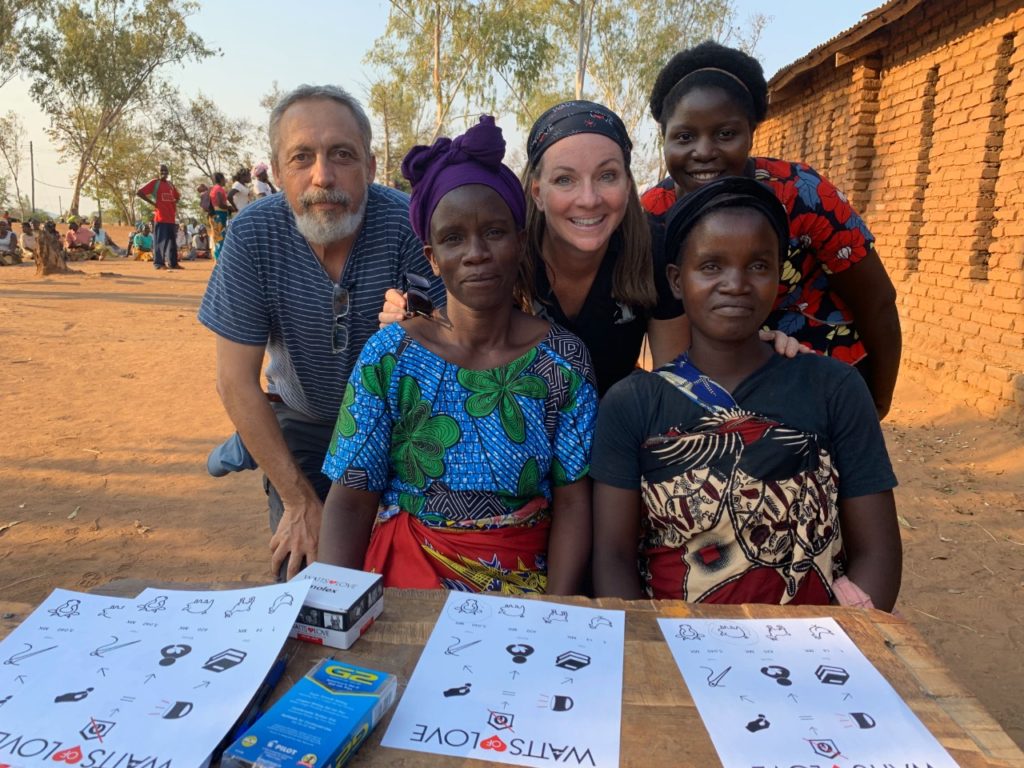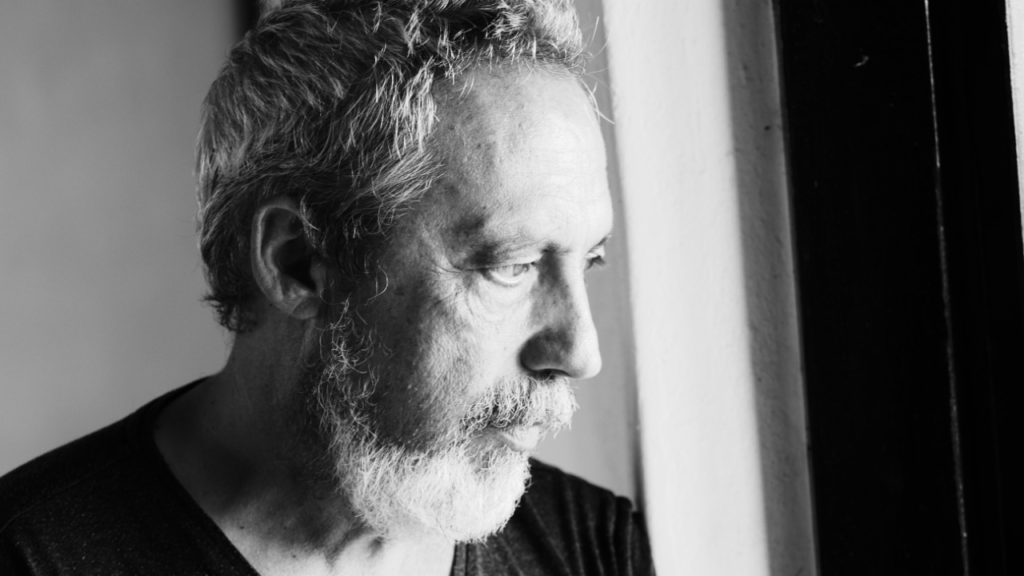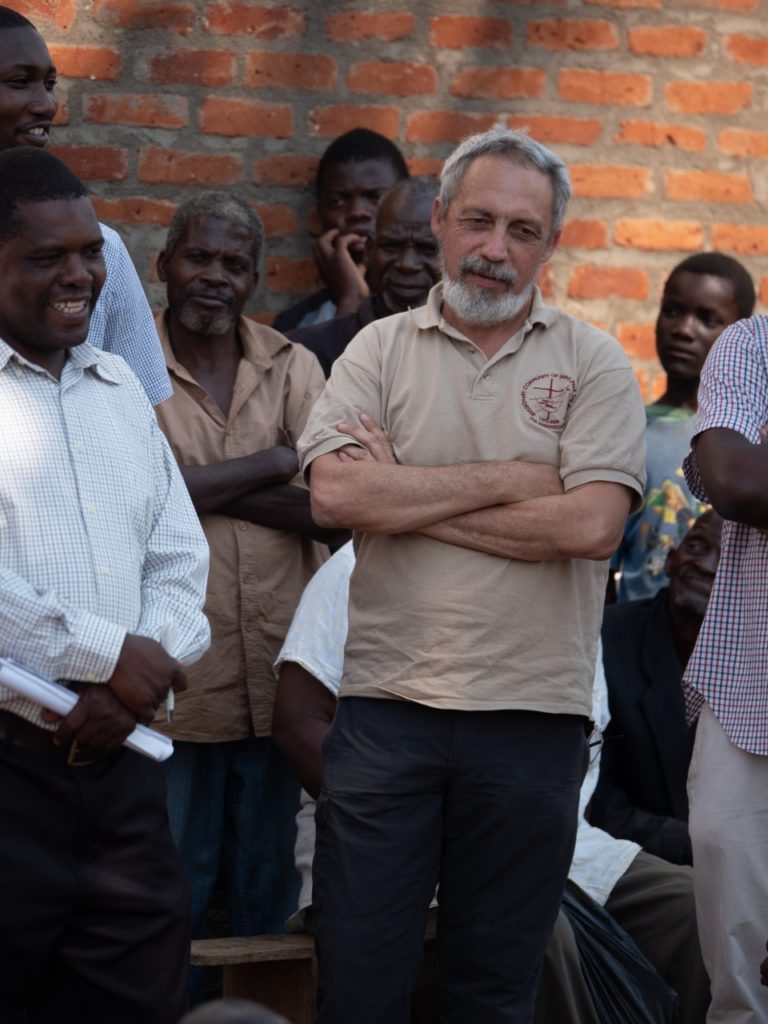“For I was hungry and you gave me food”
10 May 2023 Posted by blanca MCSPA, News 0 thoughts on ““For I was hungry and you gave me food””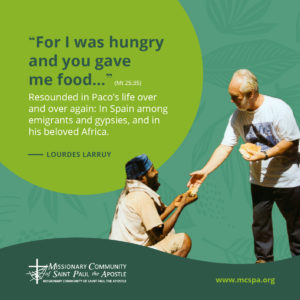

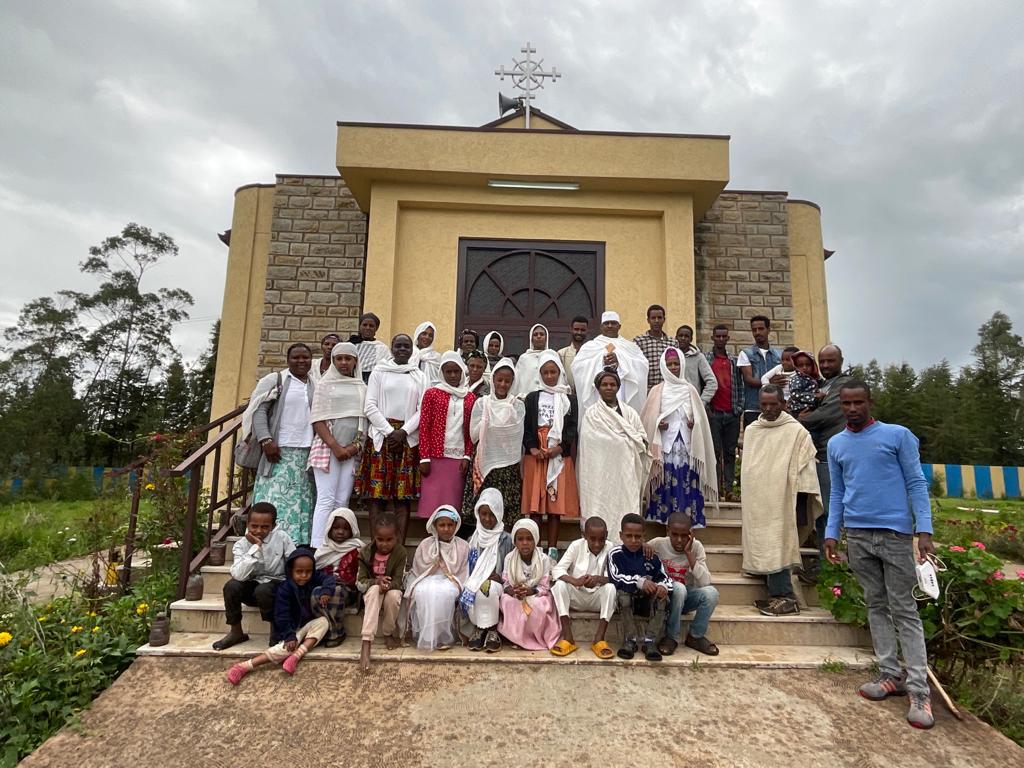
Members of the Missionary Community of St. Paul the Apostle and Mary Mother of the Church, have recently started a presence in the Eparchy of Endibir. Located 4 hours southwest of Addis Ababa, a place inhabited by people from the Gurage community, and where there is a big number of Ethiopian Catholics, who follow the Ethiopian eastern rite.
On 16th April 2023, hundreds of catholics, young and old, gathered at Holy Trinity Church, in the village of Dakuna, to celebrate Easter Sunday. During the feast, people celebrated the resurrection of the Lord as well as breaking from the 55 days fasting from animal and dairy products.
Apart from its unique mix of fascinating history, deep-rooted identity, incredible natural wonders and rare wildlife, Ethiopia is well known of maintaining the use of its own calendar which is very similar to the Julian calendar. Most of the Christians in the world celebrated Easter Sunday a week earlier, following the Gregorian calendar. However, things were different in Ethiopia. Their Easter followed one week later.
Prior to Easter, many Christians commit themselves to extended periods of both personal and communal prayers. This is done with the sole purpose of growing closer to God and to remember Jesus’ life and death.
On Easter Vigil, all Christians of Dakuna had their candles lit to express their faith. Then drums came. And then, the joy of the Risen Lord illuminated the face of all the faithful who were gathered at Holy Trinity Church.
Following the Ethiopian tradition, most people invite their family and friends for a common meal on Easter Sunday. And of course they cannot miss the presence of traditional dishes like injera, dorowot, kitfo and kocho, which altogether give a sweet fragrance to the celebration.
By Lydiah Obok.
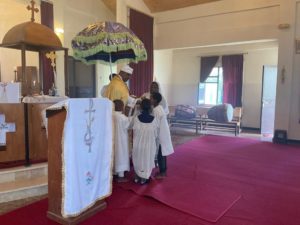
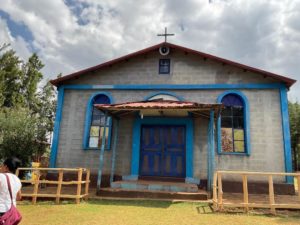
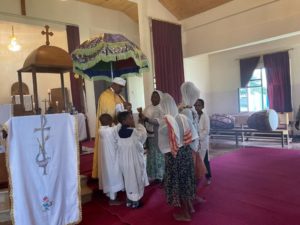
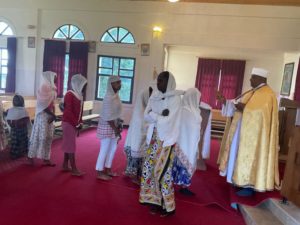
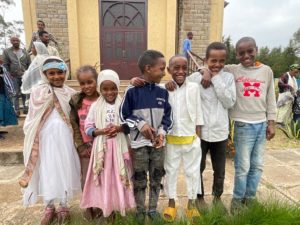
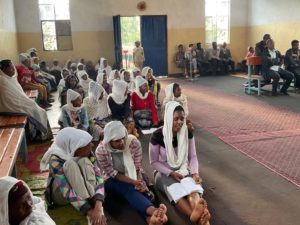
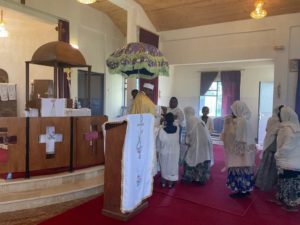
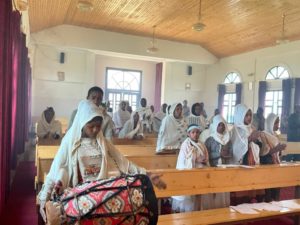
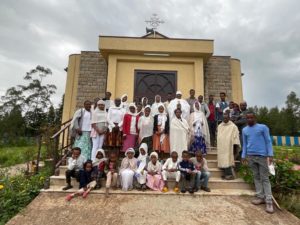
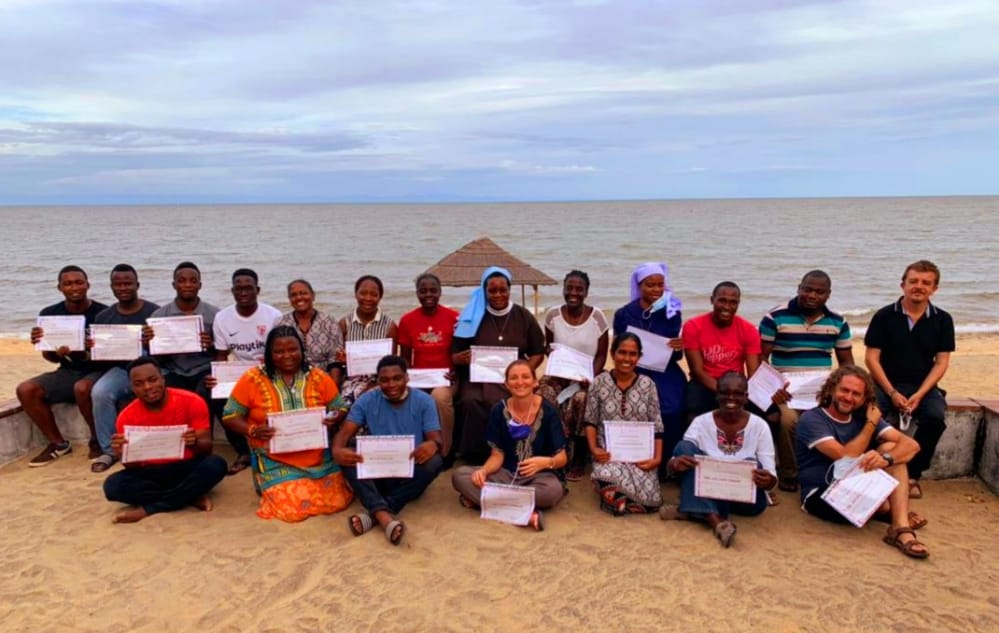
Kindermissionswerk, Aachen, Germany, in collaboration with the Missionary Community of Saint Paul the Apostle (MCSPA) in Malawi, organized a two-week training in project management concept in order to equip members of various religious and non-religious organizations with essential skills required in project development, implementation and reporting.
Development projects are a necessity in uplifting the lives of the most deprived and marginalized. In this regard, Kindermissionwerk and the MCSPA deemed it an imperative to train various members of religious and non-religious communities who are engaged in different development projects.
The training was convened at Nkhotakota Safari Lodge, situated along Lake Malawi. The breeze from the lake and the tranquility of the site provided an ideal condition for the training. Fr. Manuel Hernandez of the MCSPA facilitated the training. His proficiency and wide experience in running projects were put at the disposal of everyone. Among those who attended the training were members of the Missionary Community of Saint Paul the Apostle, the Society of Montfort Missionaries, priests from the dioceses of Lilongwe and Karonga, Sisters of the Blessed Virgin Mary, Sisters of the Holy Family of Bordeaux, Carmelite Sisters and a representative of Tikondane Organization. These are people running various projects in Kenya, Ethiopia, South Sudan, Zimbabwe and Malawi irrespectively. The training was divided into two phases of one week each. The first phase was conducted in December 2019 and the second phase in April 2021.
Speaking after the training, Fr. Bernard Maganga said, “This training has helped me know what matters most in writing a project, implementing and giving a reporting. The sessions have been very informative and inspiring. I am very grateful to Kindermissionswerk and the MCSPA in Malawi for considering Montfort Missionaries in this training. What I have learned about project management shall be of immense benefit to the whole Montfortian family and the people of God at large. Zikomo Kwambiri!!” In addition, Fr. Angel Valdivia said that the training will help in preparing sound projects, matching with the requirements of various donors.
Lastly, the training ended with a beautiful ceremony in which every participant was awarded with a certificate of participation.
By Innocent Letasi Phiri.
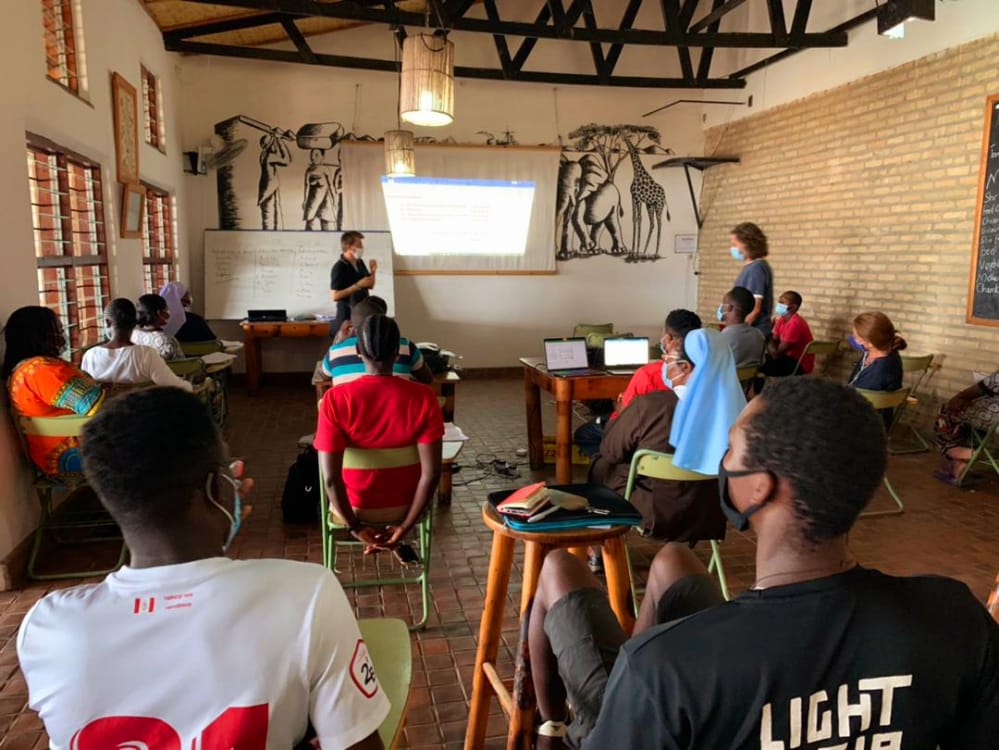
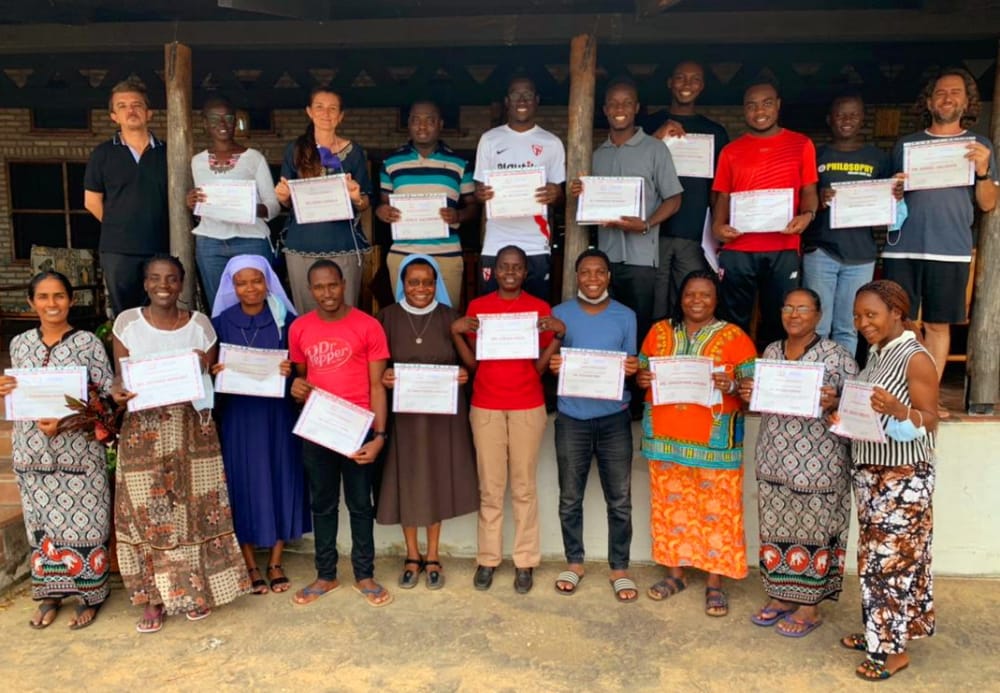

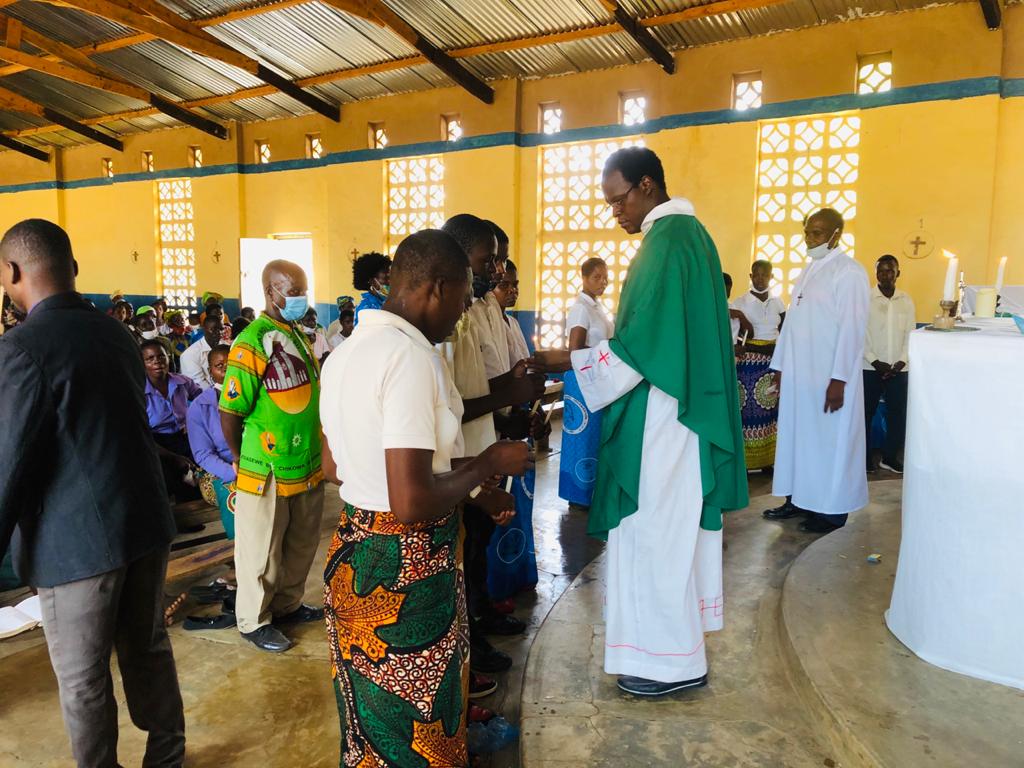
Even though this is now a dry season and despite the set back due to Covid-19, this weekend has been a blessing!
Yesterday we celebrated 16 weddings in Chikowa and it was full of pomp and joy.
Today at Mthasewe we have celebrated 11 baptisms and confirmations. The gospel reading couldn’t have been more appropriate on the invitation to the Kingdom of God as a wedding feast. A kingdom that is open to everyone and a Kindgom where God does not tire in inviting us, to a point of going out of the roadsides to get the good and the bad alike. The newly baptised were all dressed in white, a sign that they have their wedding garment on. May we continue to transmit joy of the feast by purifying our hearts especially on this time of Covid-19 through acceptance of others and generosity.
May you have a blessed week ahead
Fr. Steven Ochieng MCSPA







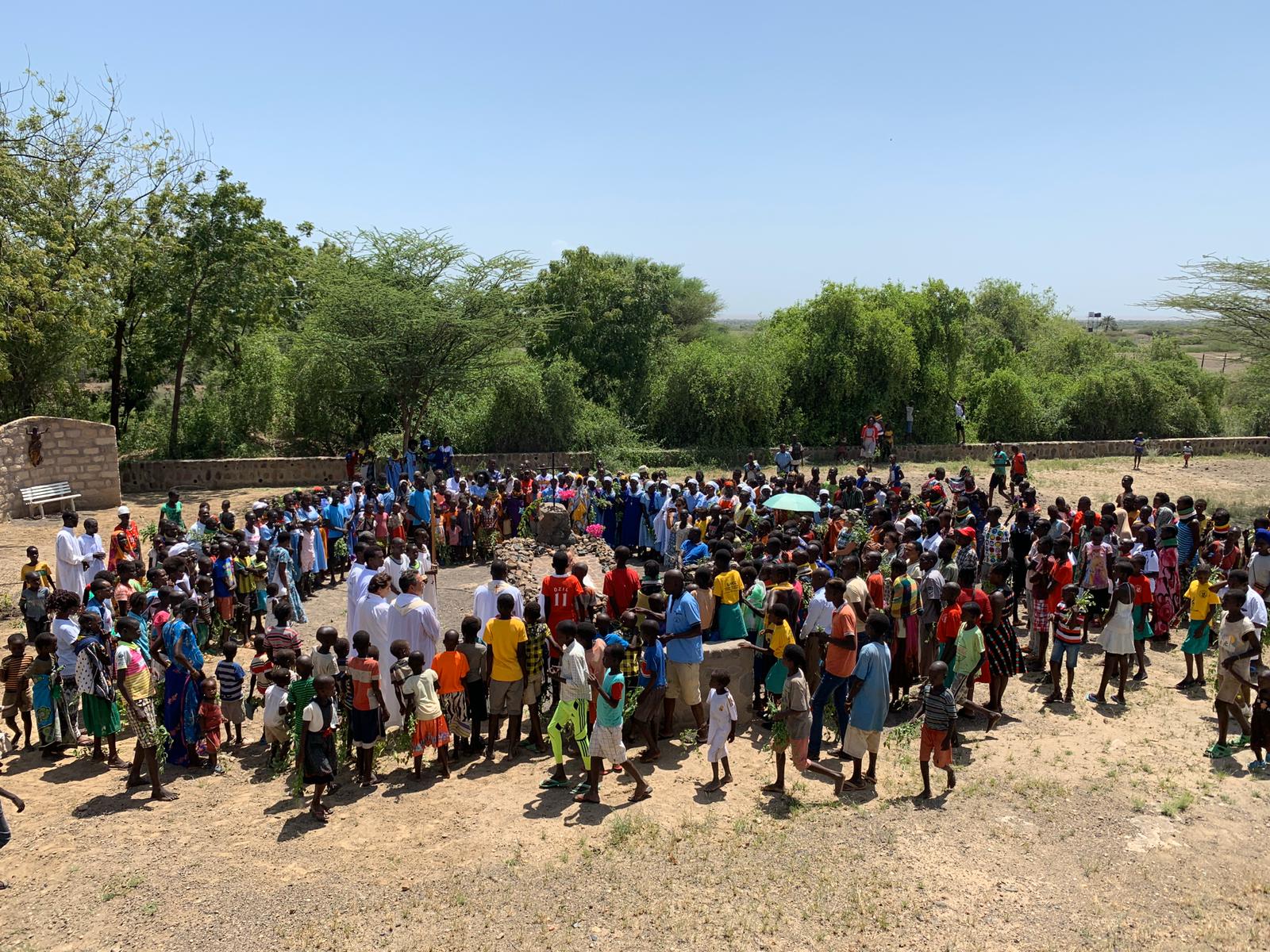
It has been seven years since Father Paco ( the founder of MCSPA) left us and crossed to the other side of life. Yes, it is seven years ago when we were mourning him! but today the Church in Nariokotome was celebrating life. The church was full, with christians from Nariokotome parish, Todonyang, Kibish. Some Christians came from as far as Lodwar, South Sudan and Ethiopia.
We all danced and sang to celebrate Paco’s life because he brought all of us from different cultures, but all with one common goal: #DoGoodAlways.
Mt 25:35-36: “for I was hungry and you gave me food, I was thirsty and you gave me something to drink, I was a stranger and you welcomed me, I was naked and you gave me clothing, I was sick and you took care of me, I was in prison and you visited me.’”
This is what Paco preached and lived.
We are all called to follow the same. Let the legacy that Fr. Paco started in 1987 in Turkana continue becoming a reality. Let’s join hand to provide water, education, food, health and holistic pastoral care to our people, doing all this with LOVE
Lillian Omari – MCSPA
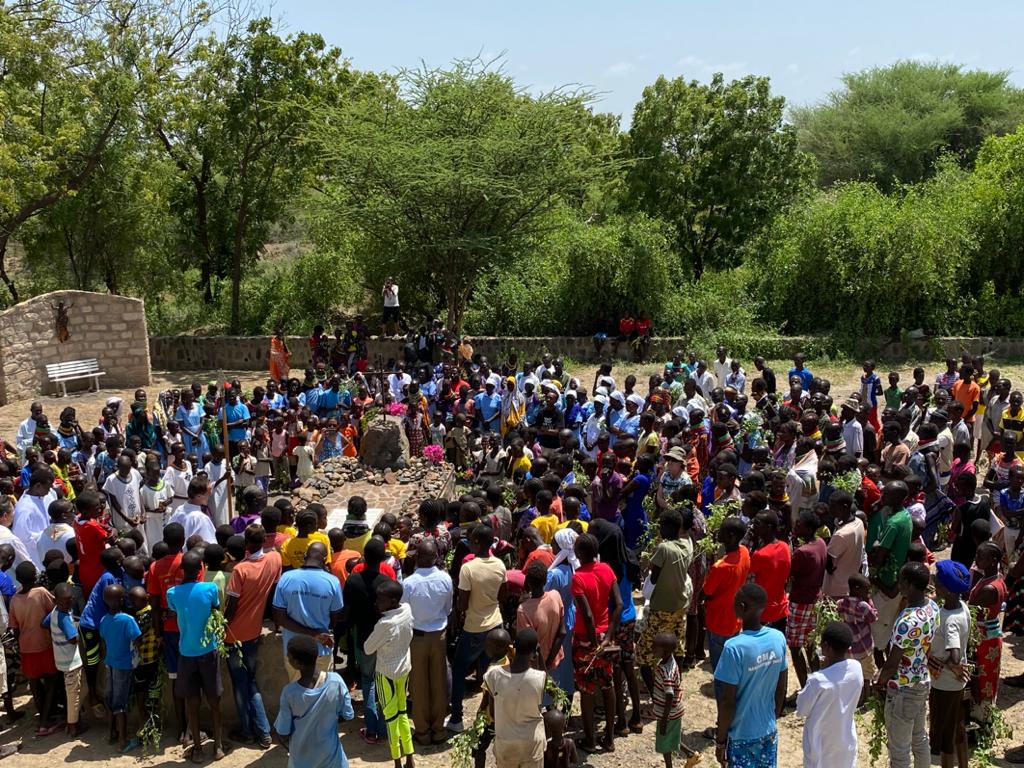
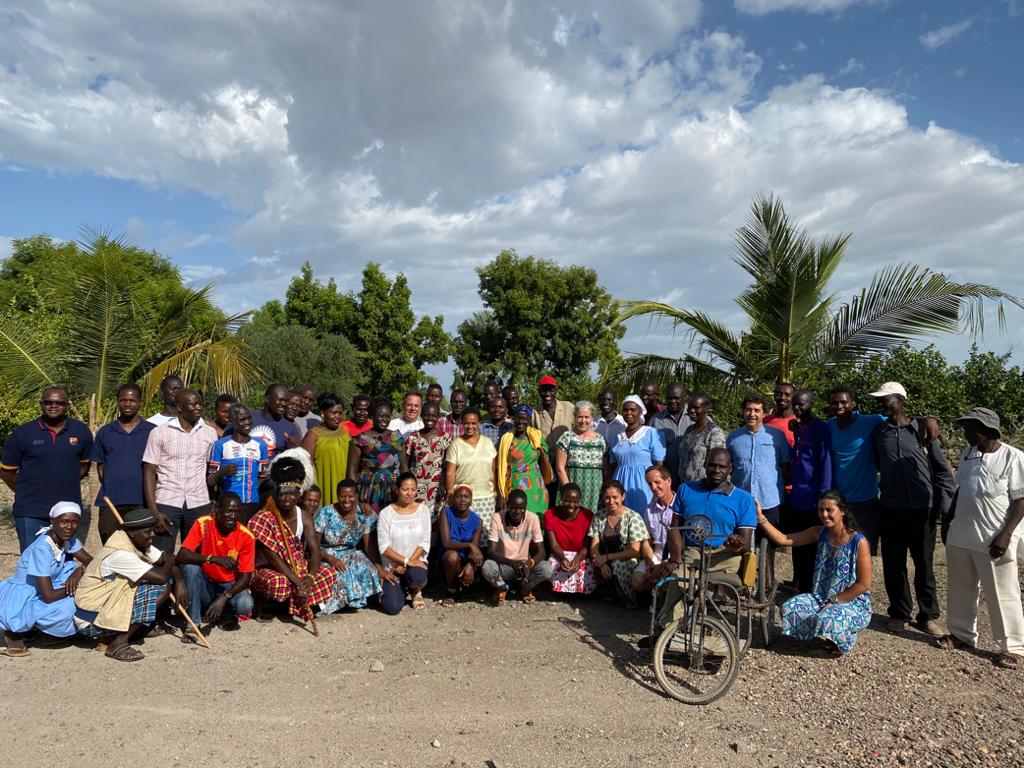
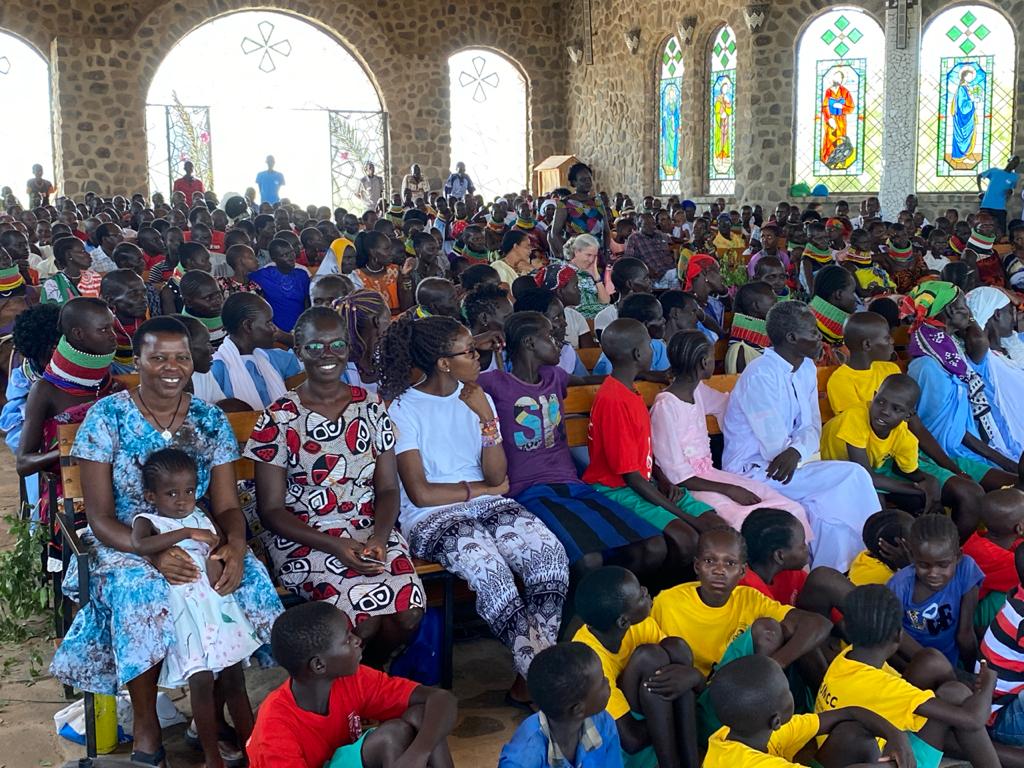
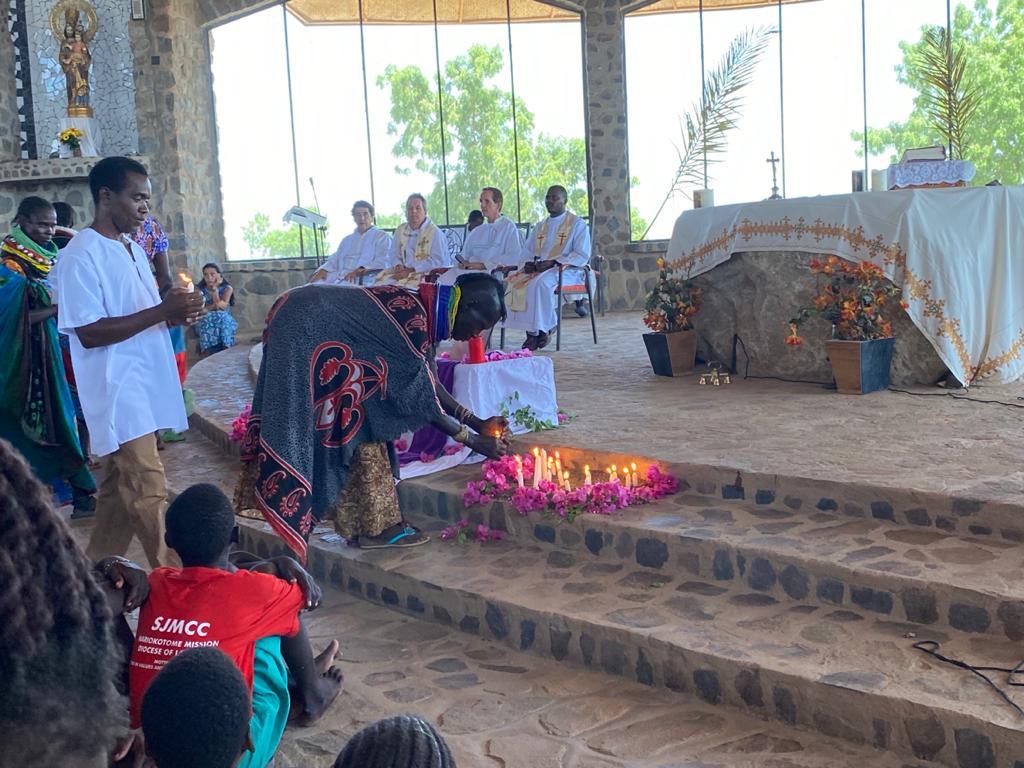
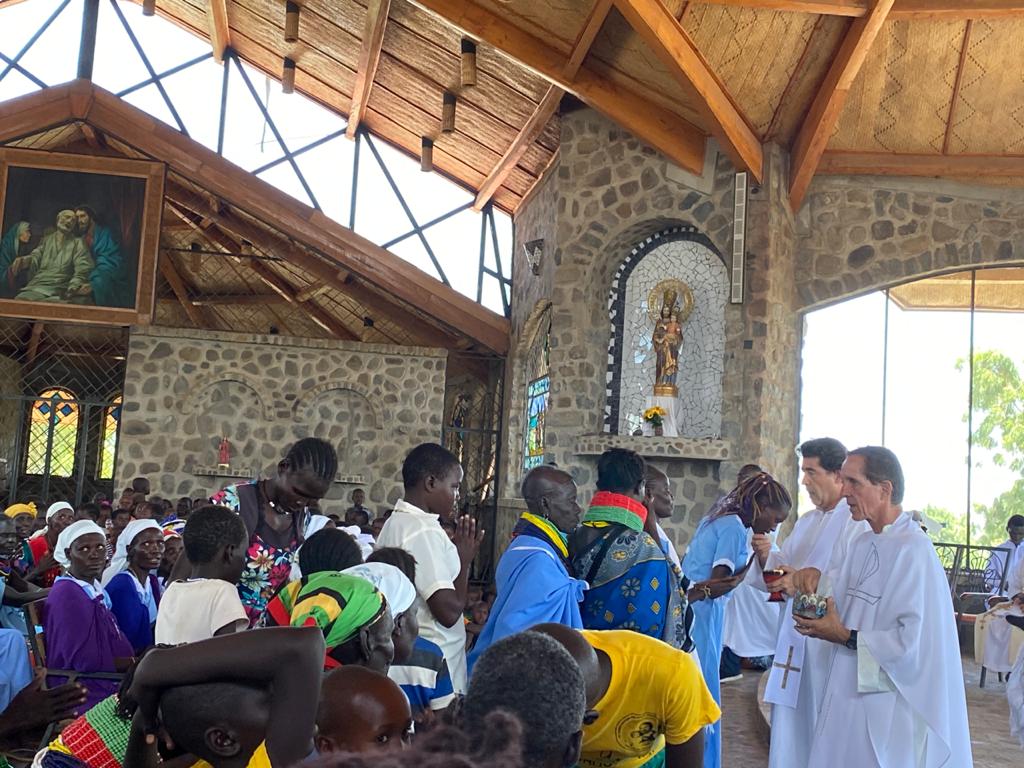
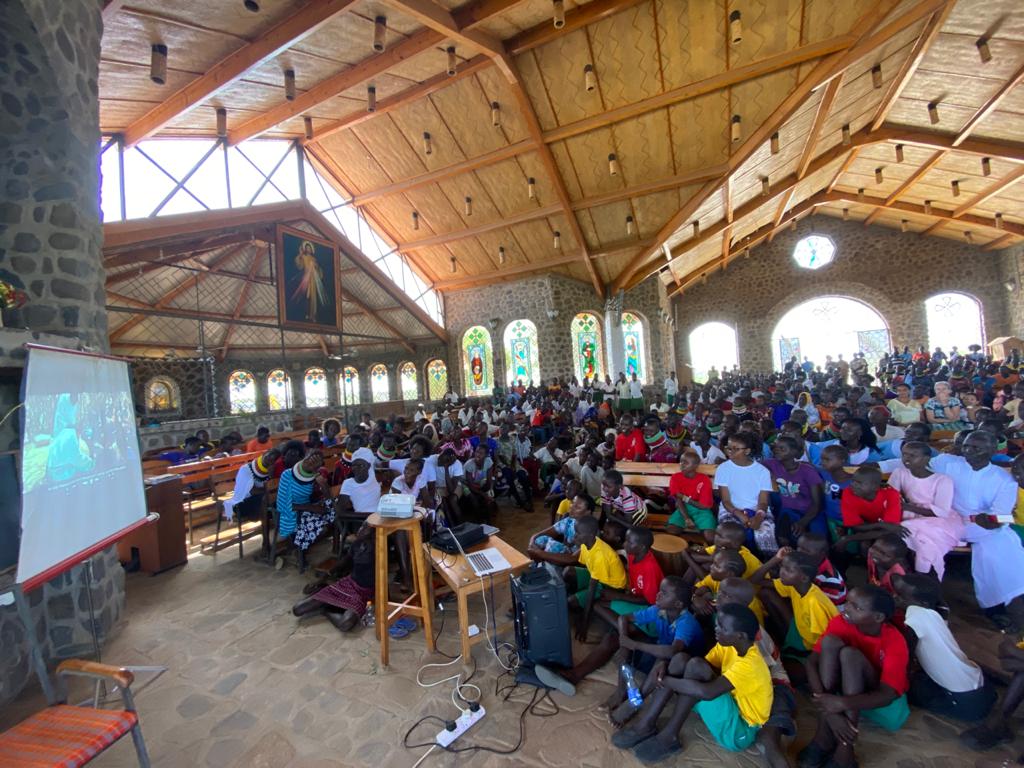
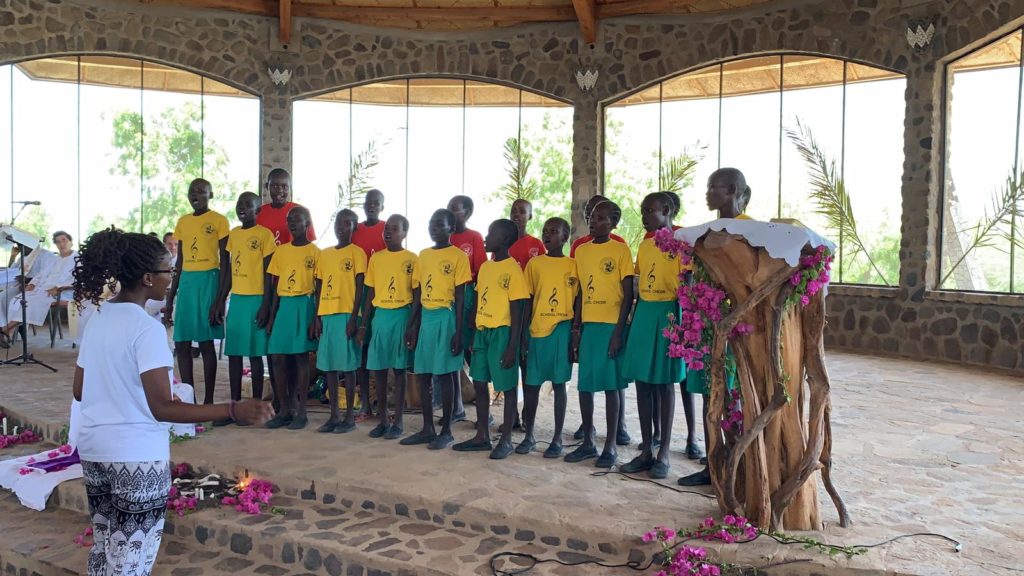
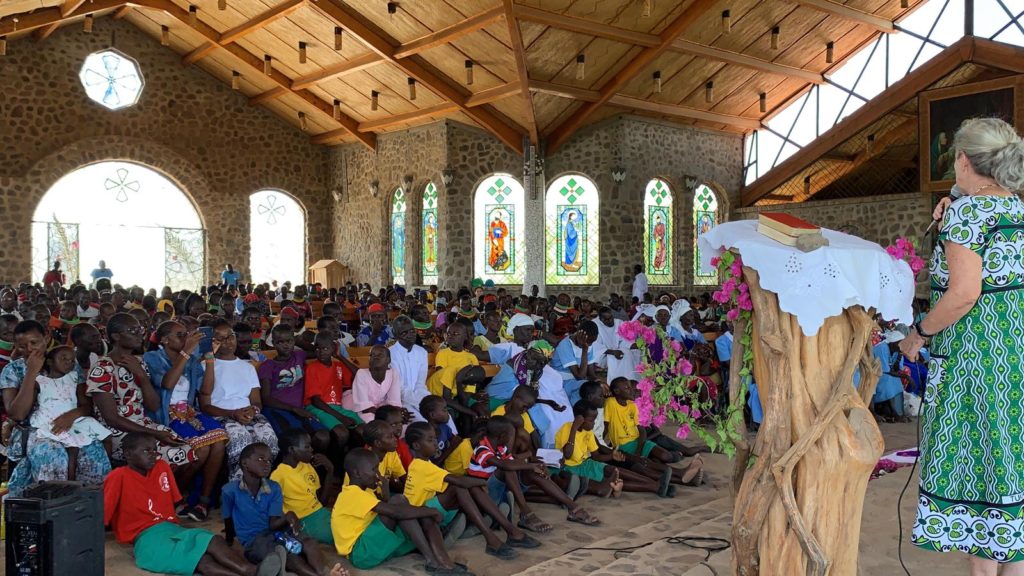
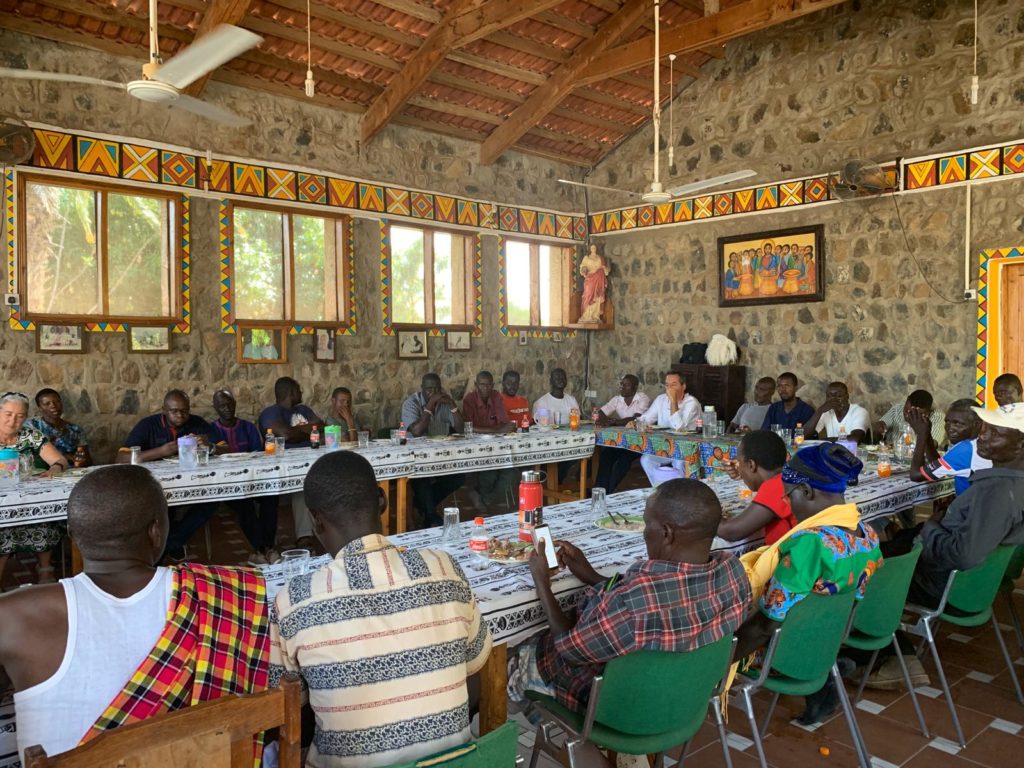
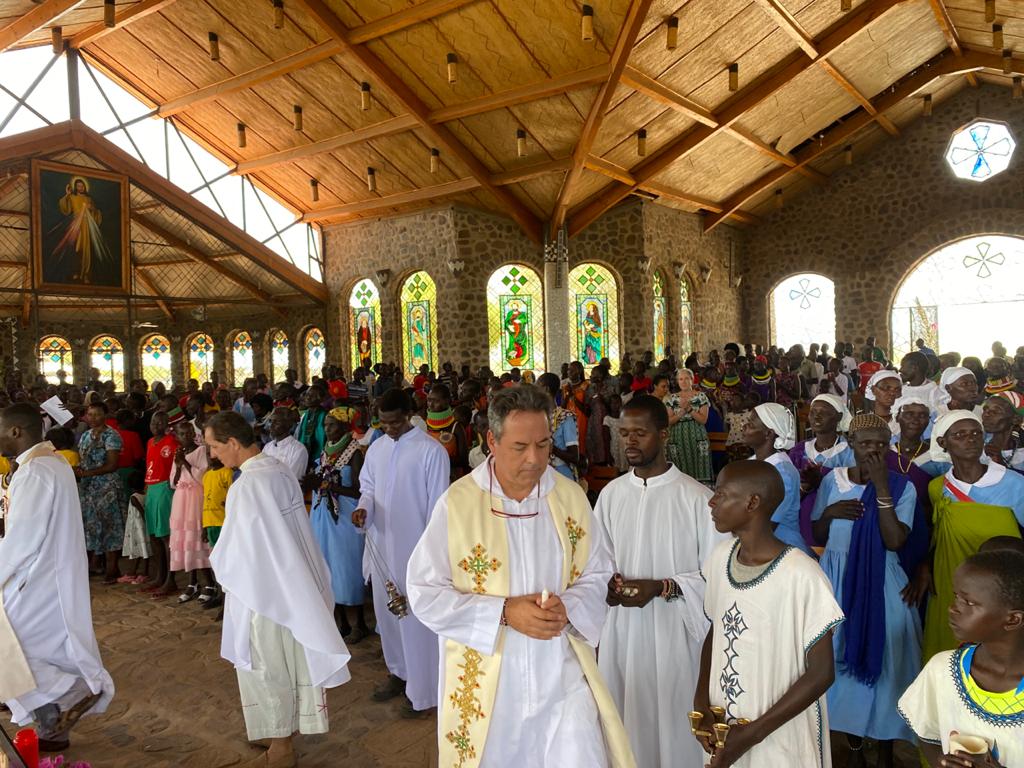
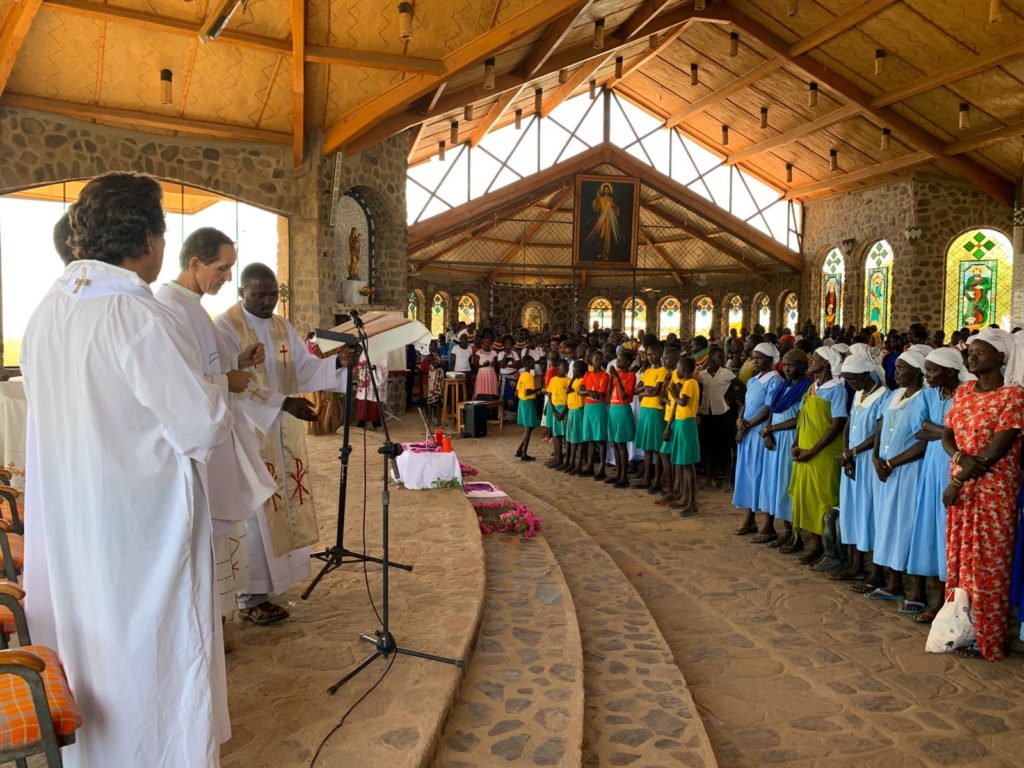
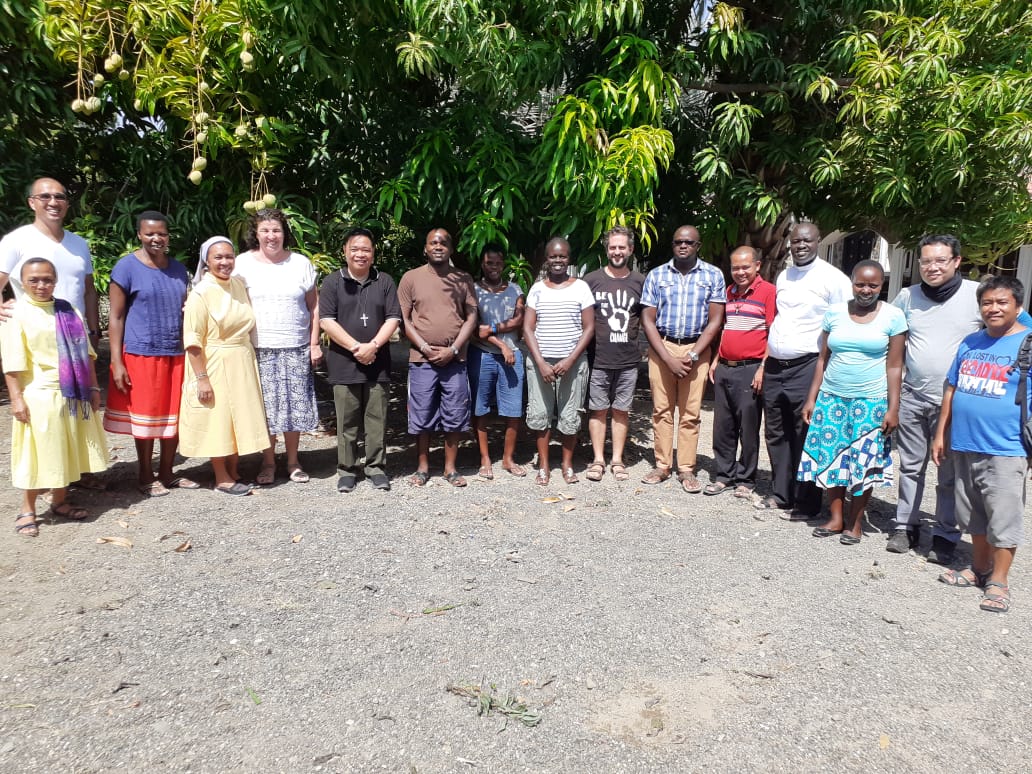
Today we were privileged to have had the visit of Mons. Marvyn Maceda, DD, the Bishop of San Jose de Antique (of the Philippines) at Nariokotome Mission.
Bishop Marvyn has supported the Diocese of Lodwar by sending priests from his diocese to Lodwar as fidei donum (Gift of Faith) priests.
Bishop Marvyn has a missionary vision and says that when one is blessed we must not keep the blessing to ourselves but share it out with others.
At present, there are 3 sisters from the filipino congregation of the Missionary Sisters of the Lord’s Table working at Kaaleng Mission and 4 fidei donum priests: 2 at Kaikor from Bishop Marvyn’s diocese and 2 others from the Archdiocese of Jaro for Kaaleng.
The Missionary Community of St. Paul the Apostle will continue in its efforts to act as bridges between Asia, America and Africa, to bring in different congregations and missionaries to work in the different African dioceses where we are present.
“Go to the whole world and proclaim the Good News to the whole of creation”
[Mark 16:15]
Lillian Omari MCSPA
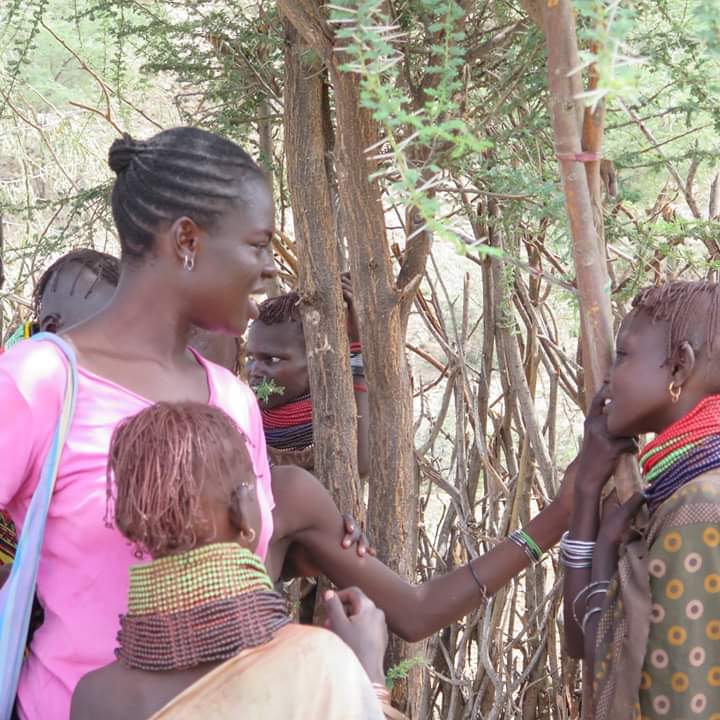
Never in my youth did I plan on visiting Turkana, and even less did I imagine that I would be living here. I did not even think that I would be able to speak and write in other languages apart from English and Kiswahili. And this was an absolutely new world that was opened to me thanks to the Missionary Community of St. Paul the Apostle (MCSPA) and especially Fr. Francisco Andreo, the founder, and Fr. Francis Teo, who invited me to participate in their vision and experience. Thus I was able to see things differently and discover in my life the value of directing my gaze towards others and to help them, in small gestures, to discover Jesus in this way: “Because I was hungry and you gave me food; I was thirsty and you gave me to drink; I was homeless and you gave me a shelter; I was naked and you clothed me; sick and you visited me; in prison and you came to see me.” (Mt. 25:35-36)
In those times, travelling for two days by road was something unimaginable which only a few crazy people would have done. In addition, it was very adventurous to go to a place like Turkana taking into account that people from the southern part of Kenya, like me, do not know its history or culture, and that most of us find it difficult to recognize it as a part of Kenya.
I grew up in Nairobi and was fortunate enough to belong to a generous and very Catholic, middle class family (as they are described these days). My parents had to work very hard to make sure that their children enjoyed a decent education, have food on the table every day and that they grow to be good and God-fearing people.
Living in this environment, I grew up believing in certain values: there was need to study hard, get good results, look for a good job, help our parents and siblings so that they have a good life, get married and continue doing the same with our children, and they with their children. I did not think that I could see things from a different perspective. But this journey to Turkana helped me to undo the prejudices that I had, including towards my own family, like for example, that we were the poorest in the neighbourhood because we did not own a car or did not eat meat every week. It was only when I saw the poverty that was in Turkana, I realized that we were very privileged indeed!
I knew about the MCSPA through my cousin George Ouma, who in those days was living with the missionaries, with Fr. Francis in particular – and he wanted to be a priest like the other missionaries. He came to my home and narrated to us what he was doing in Turkana and from then on, I felt a great urge to go there too. This was only to know this interesting but strange place called Turkana.
The journey was very, very long. The two days of travelling appeared unending and I thought that we would never arrive. Fr. Fernando Aguirre was driving a 4-wheel drive vehicle. It was my first time to ride in a 4-wheel drive vehicle apart from only seeing them in movies! The car, filled to the brim with foodstuff, medicines, furniture, chicks, saplings with only a little space in which we fit four people in the pick-up. We travelled with some Turkana boys namely, Napocho, Ekalukan and Morita. They explained to me little details about Turkana. These stories gave me the morale and illusion to continue with the journey and slowly by slowly, I overcame the initial fear and prejudices about this very remote area.
I remember we stopped somewhere during the journey and Fr. Fernando, Natalia, one of the lay missionaries, and the boys brought out a basket, and all of a sudden we made a wonderful improvised picnic with Spanish omelette, bacon, mangoes and water – a complete meal! This was another small gesture that made me change my way of thinking and helped me look at things in a different way. I never thought of carrying food during a trip, I always thought that one could stop and go to the shop and buy it. To my surprise, Fr. Fernando told me: “Even if you had the money, where are the shops to buy? If you want to be a good missionary, you have to be prepared to think of others first before yourself.”
As we approached Turkana, I realised that the landscape had become very dry and sparse as we could only see some camels and goats crossing the road once in a while and small groups of huts made of sticks and branches. The boys explained to me that those were the houses of the people, and I thought to myself, “But where are they taking me? This appears like the end of the world!”
Finally we arrived at Nariokotome Mission. There, after two days of travelling, I said: “Finally we are at home”. We offloaded everything from the car and I was taken to a house by one of the women missionaries who told me, “This is your room, please take a shower. We will have lunch in an hour’s time and later you will go to rest.” I gave a sigh of relief … and retired to my room!
Some few minutes later, I heard a call of “Emergency! Emergency!” When I looked out through the window, I saw Natalia, who was a medical doctor as well, running towards the car. I went out and inquired what was happening. She told me “Board the car and let’s go! We are going to see to a pregnant woman who is unable to give birth.” I went into the car and she drove – like one doing the Safari Rally competition – up to Riokomor in the mountains. It was a very bumpy ride. On arrival, we met a pregnant woman who had been in labour for two days without delivering; she was very anaemic and did not have much strength. Dr. Natalia took the “basket” of the car and prepared tea with a lot of sugar, gave it to the lady to drink, and we then put her into the vehicle and hurried back to Nariokotome Mission because the main dispensary is located there.
After forty minutes bouncing along on the track, those at the back of the pick-up shouted to us to stop. When we alighted to see what the commotion was all about, we discovered that the baby had already been born! I understood nothing at that time, but I was just very happy because the lives of the mother and baby were no longer in danger. When we arrived at Nariokotome, Natalia explained to me that thanks to the cup of very sweet tea that she had given the mother to drink and all the bumping around of the car, the mother was able to gather sufficient strength to muster the contractions and to give birth.
Since small details such as these occurred severally during my stay there, they definitely made me look at things in their proper perspective and see things differently from how I did before.
I was in the mission for two months helping in whatever way I could: in the kitchen, in the garden, at the mobile clinic and nutritional centre, cleaning etc. In summary, I was doing many things that I had not done before in my own home. From the first day, I felt more as one of the community rather than a visitor, despite the fact that they were people from different countries: Kenyans, Colombians, Venezuelans, and Spanish. There was something that united them: they all loved.
I went back to Nairobi and began to study. Six months later after my experience in Turkana, when I had already forgotten that way of life that I had experienced, my cousin George arrived again and asked me if I would like to go for a Mass in which the missionaries had invited me. Although I had already been for mass, I went again. There, I met again Fr. Paco and Fr. Francis. It was a simple Mass with a few persons. However, I felt something that I do not know how to explain. Something happened within me that took me back to the same happiness that I experienced during those first two months when I was in Turkana.
At that moment, I could not tell whether I had a missionary vocation. But this happiness, the importance of learning the concerns of others and directing one’s look towards the other were things that made me think again as to what I wanted to do and be in life. Through these small experiences that I have narrated, I discovered the treasure that was in Turkana with the Missionary Community of St. Paul the Apostle. The invitation to the Mass in Nairobi that weekday, the motivation from Frs. Paco and Francis to think of me and being concerned about inviting me, and later the spark that lit this flame inside me, and which slowly by slowly was fanned alive by people who thought not only of themselves, but rather wished to share their happiness with me and others. I believe that the combination of these small gestures, people and motivations ended up awakening this missionary call in me. If they would not have invited me to this Mass, I think I would have ended up doing what everybody else does: study, work, help the family, get married and have children. I thank Francis for inviting me to that Mass which eventually moved something in me!
This call within me, intensified by the people who have surrounded me during these 20 years, has been the motivation that made me into who I am and be where I am now, in the Mission of Nariokotome.
I would wish that God illumines and gives me the strength to be able to share all that I have learnt along this road, as it is said in the prayer of St. Francis of Assisi: “Make me a channel of your peace.”All that I do is first of all to thank God for giving me life, to my family, to the Missionary Community of St. Paul the Apostle and also the support and help that comes from my friends in Spain, Kenya, Singapore, Malaysia, Germany … They support us with their friendship, prayers and material assistance in order to do all these works.
During these years I have lived a multitude of experiences, sometimes good and sometimes bad. I have visited and lived in many different countries (Ethiopia, Colombia, Germany) with different people. I speak different languages, and all these have made me into a humble and, I would like to believe, a better person. It has also moved me to try and share my happiness with other persons of encountering Jesus in others through small gestures. I hope that my experience will help others encounter this same happiness, always carrying God’s smile to all places.
Lillian Omari, MCSPA
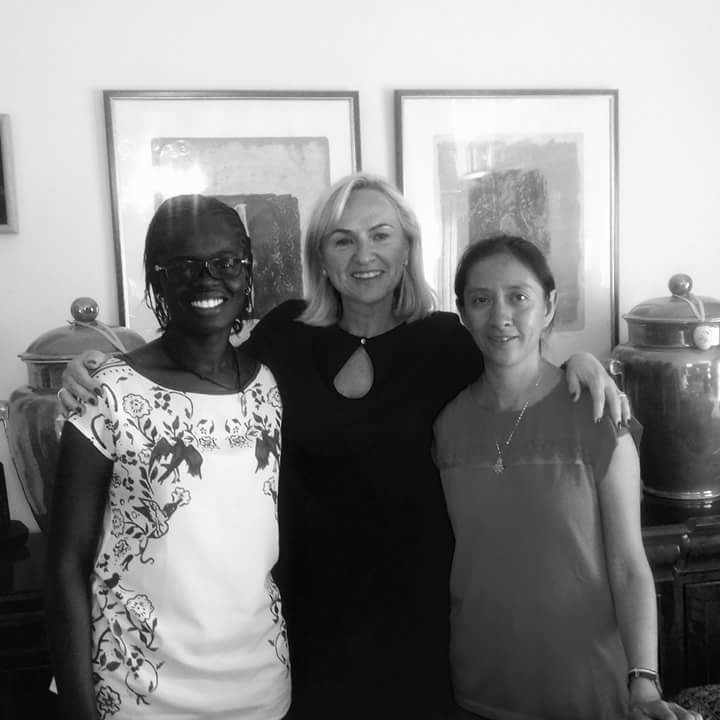
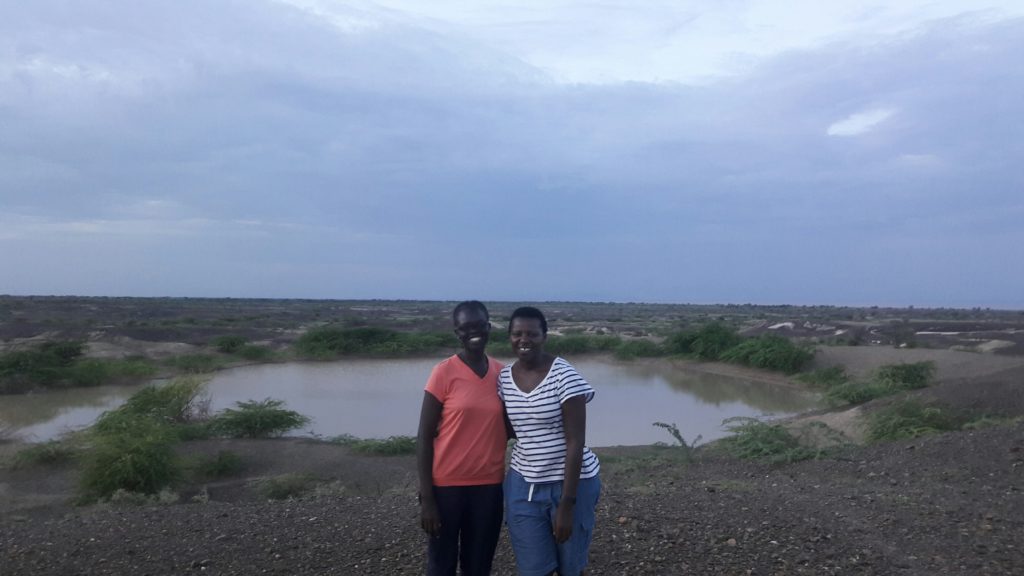
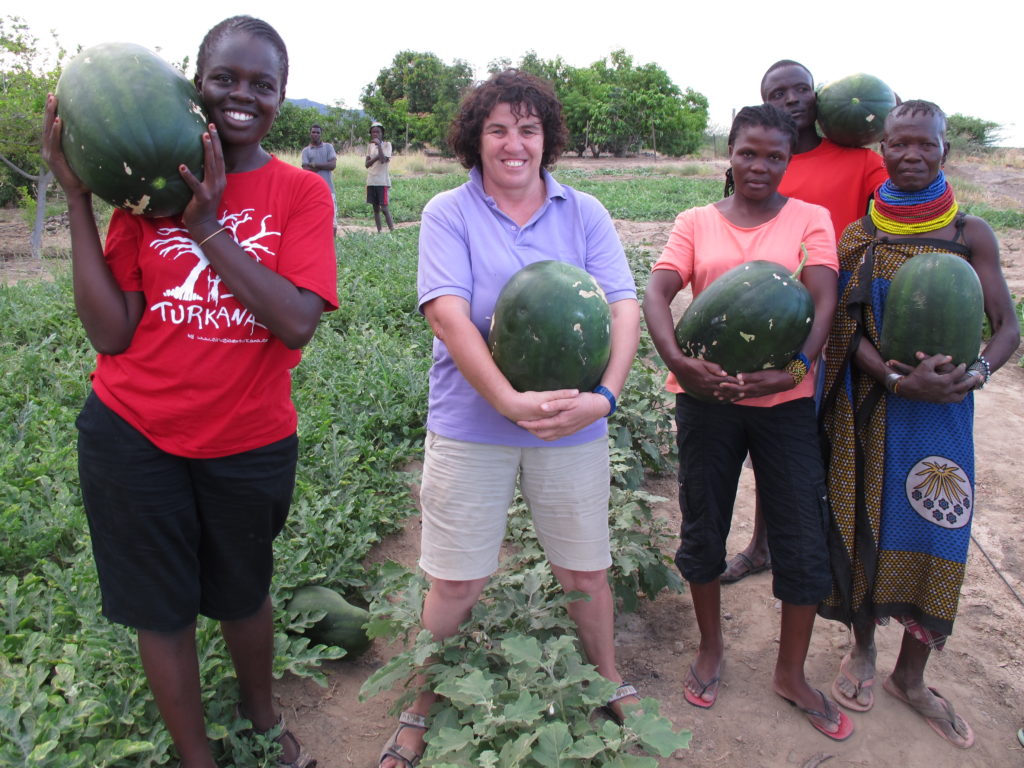
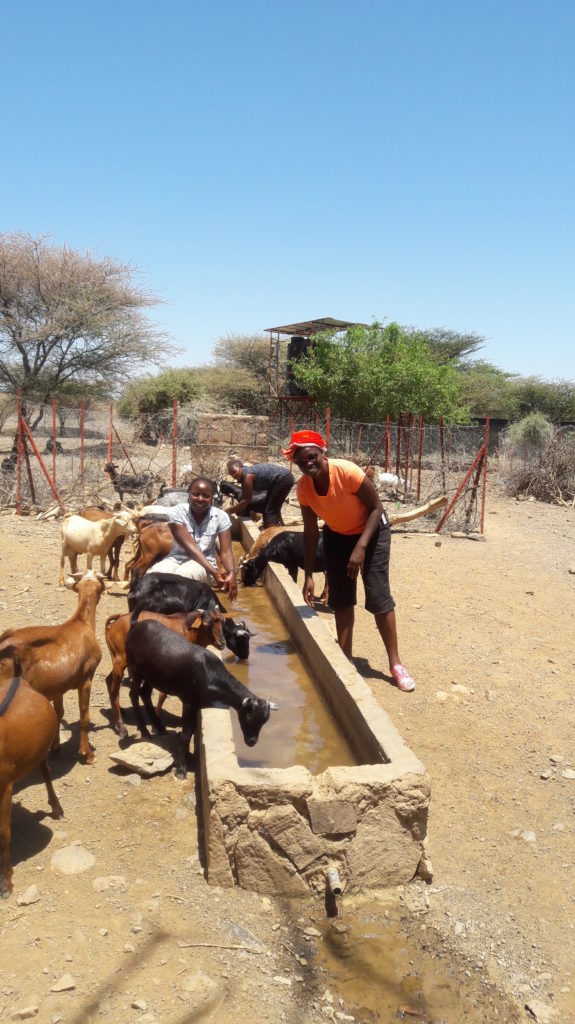
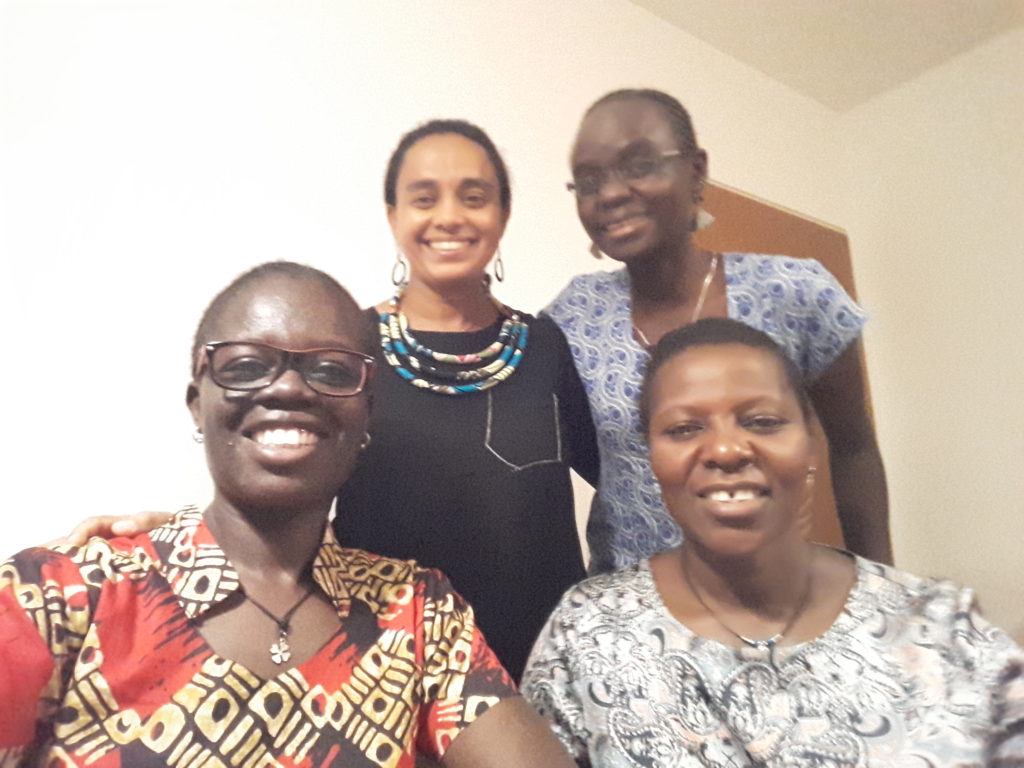
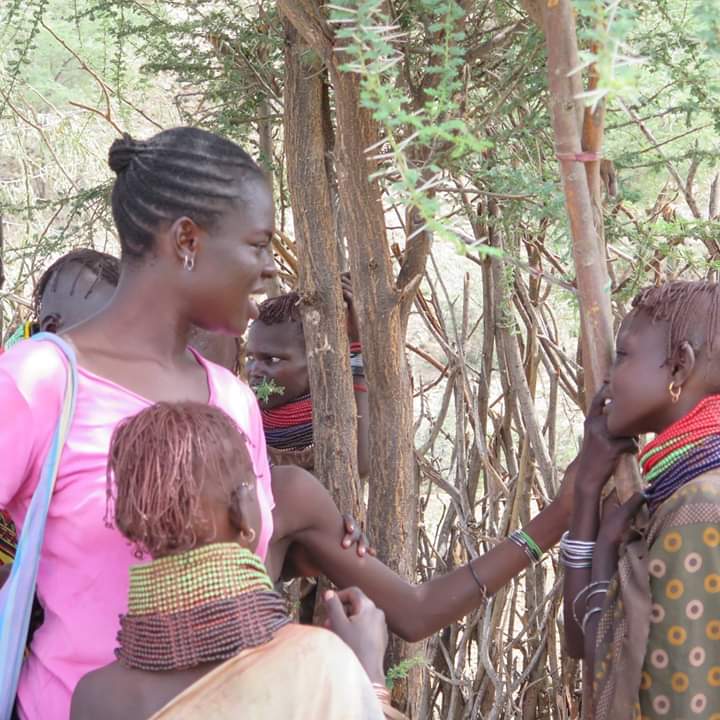
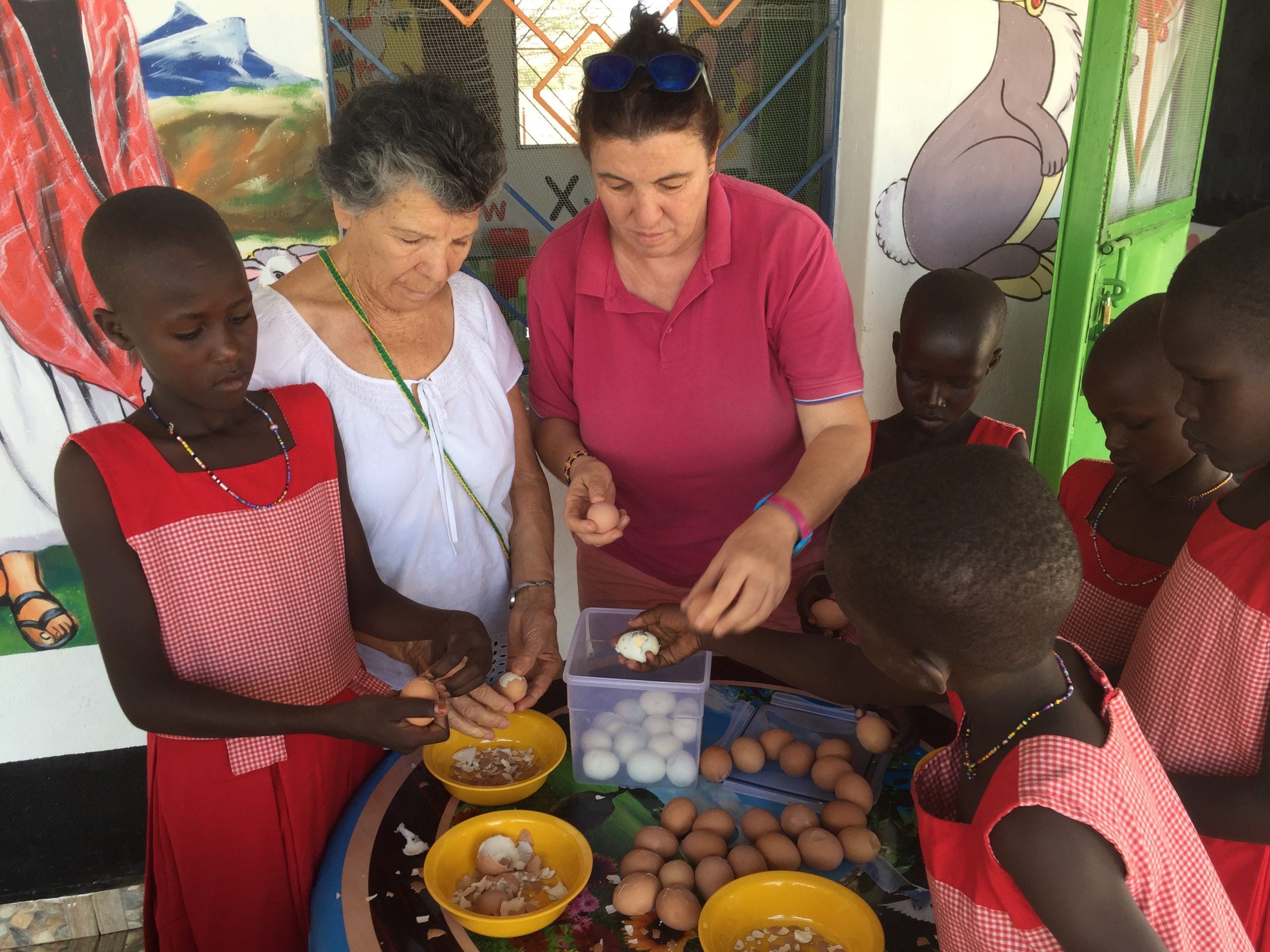
It is always difficult to explain how one’s vocation was born. My case is not as striking as one may imagine. People often consider the missionary or the religious person as someone so special, almost describing them as extraordinary beings. However, it is not like that. We have so much to learn from others. What characterizes us is that we have a deep love for those who are marginalized, even when this is not always easy.
As you can see by my name, I am Italian even though now I have little in me from Italy, because I have been living in Kenya for more than 28 years and, as you know, here we speak English and Kiswahili; in our community, we speak Spanish and English. In short, I do not know what language I speak anymore, probably a mixture of everything.
Let me tell you how I arrived to this remote land. I lived in a small village called Pietraforte, in the province of Rieti, in Italy. At the time my town had around 100 people, and I am not exaggerating. Many people had left the town looking for jobs in the larger cities. The parish priest was from Spain. One day, he came to celebrate a funeral in the town and I went to see him, to request a certificate for one of my cousins who was getting married. I saw the priest’s car outside the church and two young women sitting inside. I got close, opened the door and sat with them. The young women were surprised to see me and I explained to them why was I there. They spoke to me half in Spanish and half in Italian. They were two lay missionaries of the Missionary Community of Saint Paul Apostle, who talked to me during more than half an hour about what they were doing in Kenya. I told them that I had always wanted to be a missionary, but that every time I approached the priest he introduced me to nuns, to see if I wanted to be a religious sister, and I saw that this was not for me.
After a while the priest came and invited me to go with them to Rome, because Fr. Paco was arriving that day. I went with them. From the first moment Paco saw me, he invited me to go with them to Kenya. He seemed too determined, to me. It was the first time that someone who did not know me trusted me at first sight, and I told him yes, I would go. I was with them for two days, and even though everyone tried to talk to me in Italian I could barely understand them, and I did not speak Spanish at the time.
That was how some months later I left my family. I had previously a brother, four years younger than me. He was born premature, six months into my mother’s pregnancy. He had to stay in an incubator for some time. Later was diagnosed with cerebral palsy and lived only until he was nine, when I became an only child. Fortunately, my four-year-old cousin came to live with our family after his father died and my mother raised him until he was 14, and went back to live with his mother. Then I really became an only child. Nonetheless, my parents did not oppose my going to Kenya. At the beginning they missed me a lot, but later they accepted it.
Now, after many years, I understand well Paco’s determination to call me to leave everything and follow Christ, in order to go where there is nothing, where people are so poor that they live with “less than nothing”, in Turkana.
When I came to Kenya I lived for a long time in Nairobi. I was the only Italian in the community and I only spoke Italian. Many times I felt odd, I wanted to go and live in Turkana, in the desert, and not in a large city. I remember that at the beginning I only wanted to be with one of the young missionaries whom I had met in my village, but she had to go to another mission in Bolivia and it was hard to adapt to the rest. My mother would call me occasionally for a minute to see if I was well, and even though I always said yes, she noticed that it was not true. I never told her, but it was very difficult to leave my family and my “small world” where I was used to do everything I wanted, to travel and to make my own choices.
The first months were like this: “I like it, but…”. After some time everything began to change: I understood better the meaning of the life I had embraced. The love and, most of all, the patience that the community had with me were extraordinary. After some months I decided to stay. It was after visiting Turkana, after seeing how people lived, after seeing the work done there. I think that Turkana moved me, and the thought that I could be useful changed me.
During the 28years I have been with the Community my mother has come almost every year to stay with us. She felt at home, teaching people to sew, embroider, and cook Italian pasta, sausages and other things. It is beautiful to see how one’s family can become a part of the Community, and at the end we all form one, big family. When they come they serve others, they learn to love our people in the mission and have a better understanding of the things I have explained to them.
It was not mere coincidence that my small village had a Spanish priest. Everything came from God’s hands, who was there. I simply had the door open, and I hope that God’s hand will continue to guide me on the mission’s paths, wherever He wants to take me
Patrizia Aniballi, MCSPA

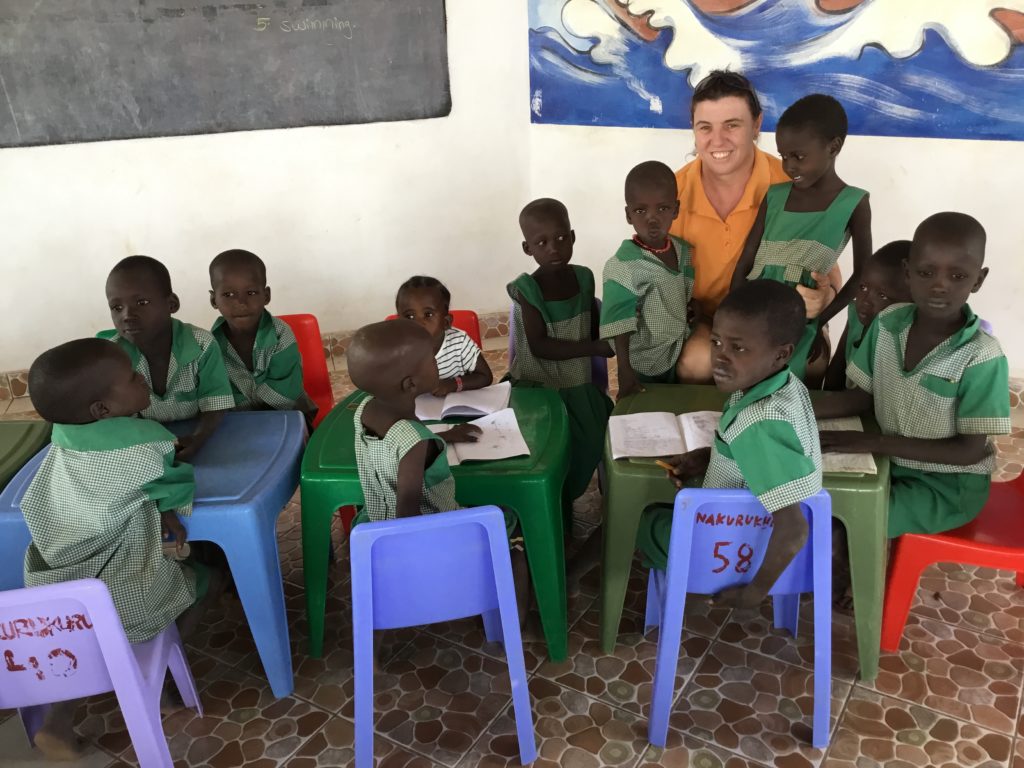
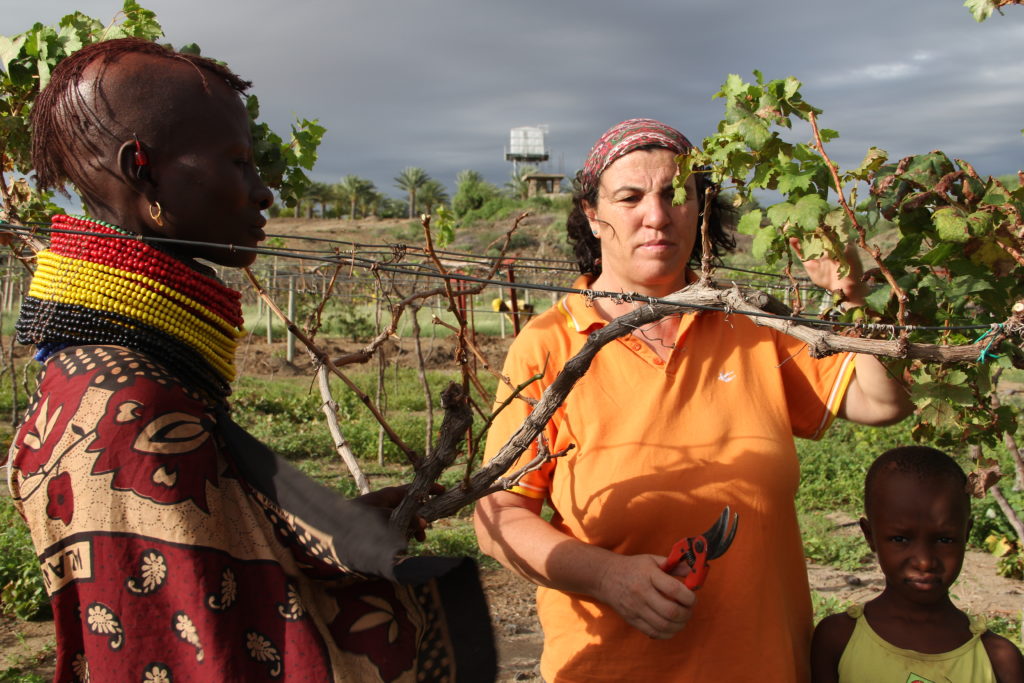
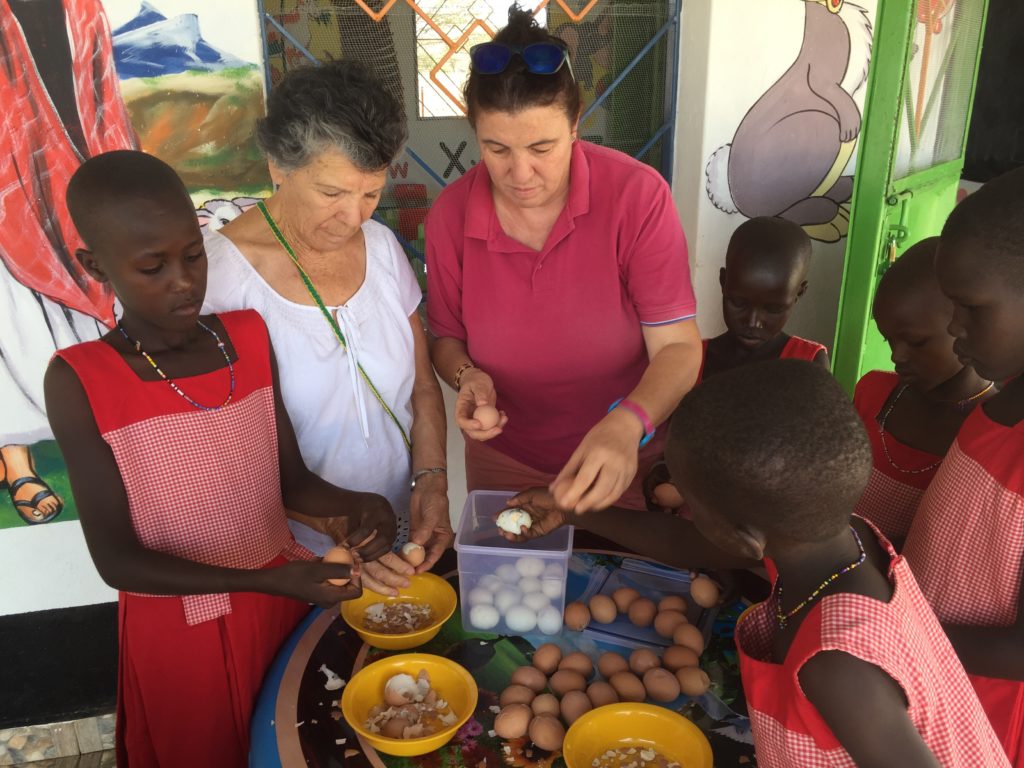
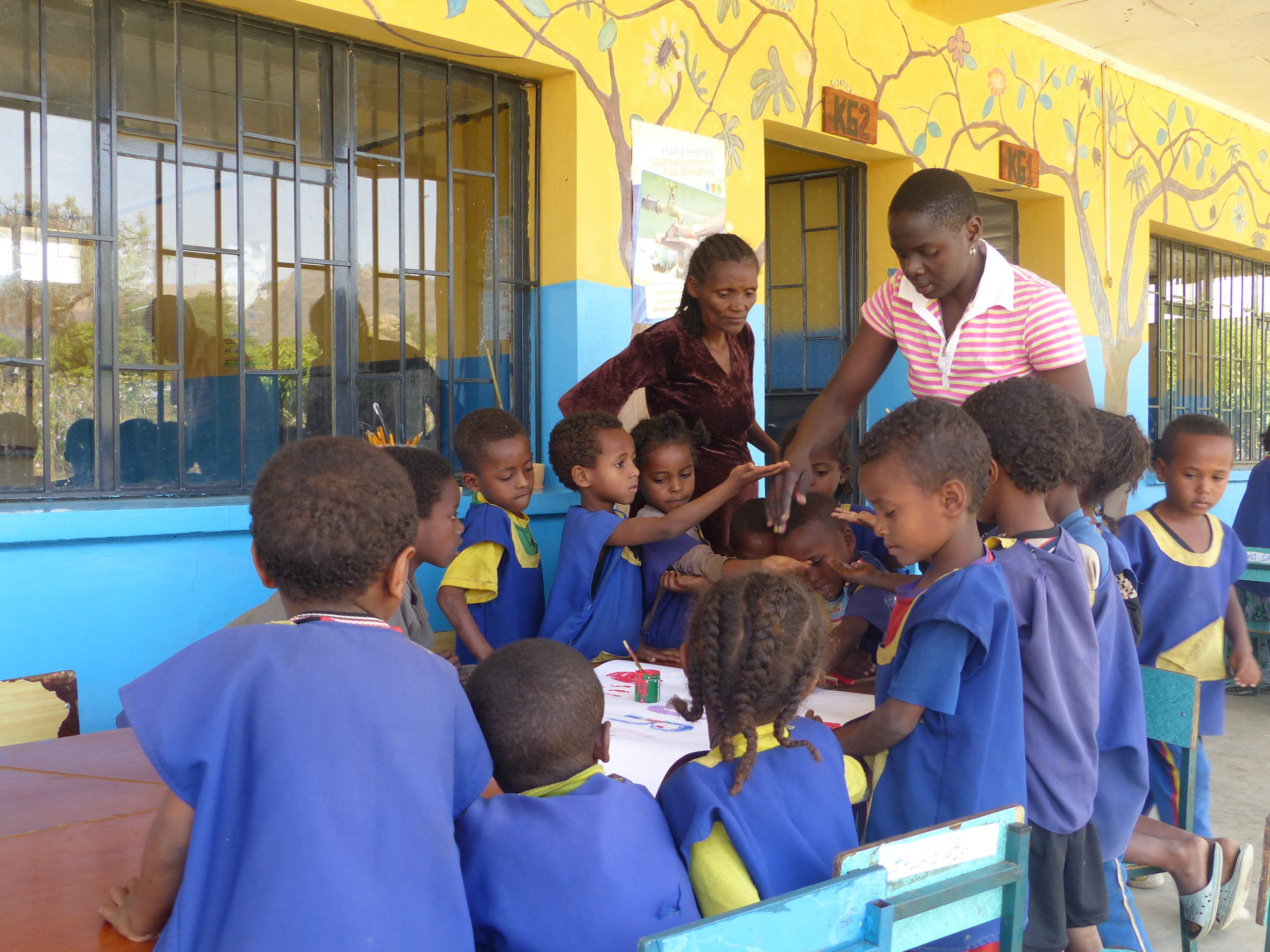
Pope Francis has declared this October the Extraordinary Month of Mission. Every 3rdSunday of October, the Church celebrates World Mission Sunday. The theme this year is “Baptized and Sent”. These words commemorate Jesus’ exhortation to his disciples when he sent them, in twos, to go and preach the Gospel. And they set out, placing their faith firmly in God. A missionary is one who is sent out, he or she leaves country, family, friends and many other things. And yet we all know that we are never left alone, for the Holy Spirit will always accompany the community we serve and us.
I met the Missionary Community of Saint Paul the Apostle (MCSPA) in March 2001; I was in the final year of secondary school and preparing for the final examinations. I was busy and worried about passing the exams and being able to join university or college, so that I would be able to pursue my dream in life and have a bright future like most others. Two priests from the MCSPA – one of them was Fr. Steven Ochieng – were invited by a classmate of mine called Lillian Odembo to our school to give a talk to all the Catholic students on vocation. They spoke about the missionary life and what it meant to be a missionary. They also explained about Turkana where the missionaries were living and working. All that they explained sounded interesting to me, but during the talk I kept asking myself, Why Turkana and not other parts of Kenya that also needed our help? I gave my contact, so that they would contact me whenever the priests or any other member of the Community would come to Mombasa.
I come from Mombasa, which is in the southern part of Kenya along the coast where the climate is tropical. Fr. Francisco Andreo (Paco) used to go to Mombasa often to buy seedlings of fruit-trees, such as coconut, date palm and cashewnut for planting in Turkana along the shore of Lake Turkana where the mission had opened some small plantations of fruit trees. In one of his trips to Mombasa in August 2001, I had the chance to meet him. I remember Lillian Odembo coming to my house in the evening to tell me that Fr. Paco was in Mombasa and if I wanted to go and meet him. I went the next day with Lillian Odembo and other girls who had given their contacts. After this first meeting, whenever he came to Mombasa, he called us prior to his arrival so that we would look for seedlings of coconut and cashewnut at a good price. In one of his trips to Mombasa, Paco invited us to go to visit them in Turkana and see the work that they were doing there.
At the end of November the same year after my final exams, I decided to go to visit Turkana together with other girls who were in touch with the MCSPA in order to see what the missionaries were doing in that semi-arid land. I was impressed with all that I saw and with the Turkana people as well. I also got the chance to finally see where Fr. Paco was planting all the tress he asked us to buy for him in Mombasa. We used to go out with him to the lake shore to work in the shamba(or gardens), look for places where to build rock dams and earth dams. We went for masses on Sundays in different places within the parish/mission territory. Whenever we went out, we used to prepare a big basket packed with food, especially bread and tea. Whenever he met a child or woman, Paco would stop and give a piece of bread. This impressed me a lot and I wondered how someone from far could come to help our people in Turkana. I felt challenged as to why I was not the one doing it and yet I am from the same country as these people.
I went to Consolata Primary School in Likoni, a school run by the Consolata Missionary Fathers and all I knew about missionary work was what I saw in the work of these Consolata missionaries. I was also in the parish youth group and each month we would go visitNyumba ya Wazee (the home for of the aged) in Tudor, Mombasa.
My days in Turkana went by so fast. After the Christmas celebrations, I travelled back to Mombasa. I had wanted in my mind to go return to Turkana whenever I would have holidays. I also had the idea of inviting other youth from my parish to organize and go to help as we used to do with the elderly in Mombasa. Upon arriving home from Turkana, I kept explaining to my family and friends what I had seen and done in Turkana. Back home I could not stop thinking and talking about the missionaries, the Turkana people and the work of the missionaries among them. In February 2002 I decided to forget all that I had desired to do after my studies, and made a firm decision to return to Turkana.
I first explained my decision to my elder sister but she could not understand why I would want that. Then I decided to explain to my mother, but she was completely against me being a lay missionary. I come from a Catholic family and I thought that my mother, being a good Catholic all her life, would not hesitate or have any objection to me following this vocation as a lay missionary and serving the Church. She refused to give me the fare to go back to Turkana; my elder sister helped me pay the transport and she told my mother to let her daughter do whatever she liked as she would come back in the end. That is when my mother cooled down, and I called Fr. Paco to say that I had decided to go back to Turkana to live there and be a lay missionary.
I first lived in Turkana, and then in Ethiopia, and afterwards I went to live in Mexico. This meant that I had to learn Spanish. It was not easy for me, but with the help of other missionaries like Lourdes, Rosa, Eleni, Pauline and others, everything became so much easier. I gained and learnt a lot all those years living in Mexico. We used to work in the outskirts of Mexico City in an area called Ajusco. The majority of families that live in this place are immigrants from other countries of South America. There are also other families from Mexico who come from rural areas with the hope finding an elevated lifestyle in the city but then the reality turned to be different and so they have no choice but to opt to live in this poor neighborhood. The reality in Mexico really impressed me. In Ajusco, we worked with children, young people and women and many companies as well as private people would always help by responding positively whenever we asked for support. People would donate for the smooth running of the nutritional centre. I also studied a three-year Diploma Course in Nursery School teacher, and it was very difficult for me to study in a foreign language but thanks to one teacher, Mrs. Maria Eugenia Roch, a music teacher, I was able to understand the course and finish it. After getting used to Mexico and its people, I had to leave and come back to Africa, Ethiopia in particular. This meant learning a new culture and new languages: Amharic and Oromo.
In my experience as a missionary, I have experienced several paradoxes in life: light and darkness, happiness and sadness, certainty and crisis, but most of all, a continuous transformation and learning. Missionary life makes one feel united with humanity and one discovers and learns to value everything, even when that which one does may appear insignificant in the eyes of the society.
I would like to thank everyone who helped me in my vocation, especially Fr. Francisco Andreo for inviting and giving me the chance to follow Christ through him. Also to all those with whom I have lived the many years in this missionary journey of a life: Lourdes, Rosa, Scholastica, Eleni, Pauline, Josephine, Luz Maria and the other women in the Community; to all my family, my elder sister and my mother for understanding my vocation. I thank Lillian Odembo too, who really encouraged me to continue in this journey, even though she eventually left to do something different in her life.
I would also like to invite all the young people to be open to the call of God, that they should not be carried away by the unnecessary storms of the world and shun the call of God. They should leave some space for God to enter into their life’s dreams. If they feel a call from God, they should not doubt it and, instead, realize that there are also greater opportunities in life as a follower of Christ!
Lydiah Obok , MCSPA
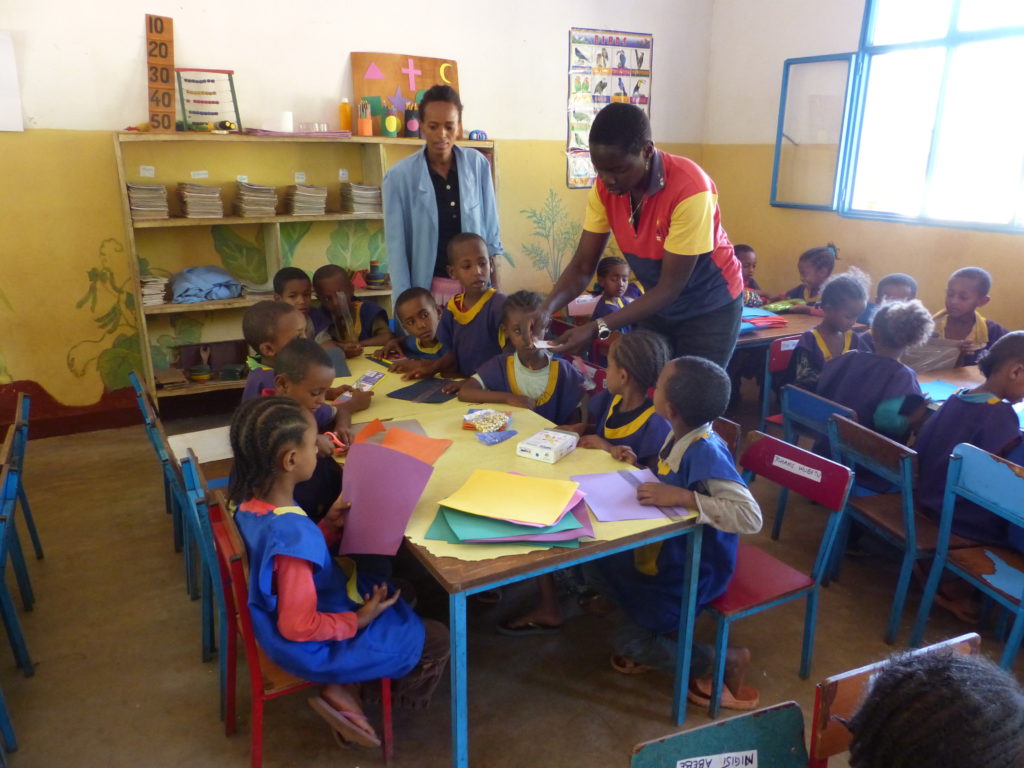
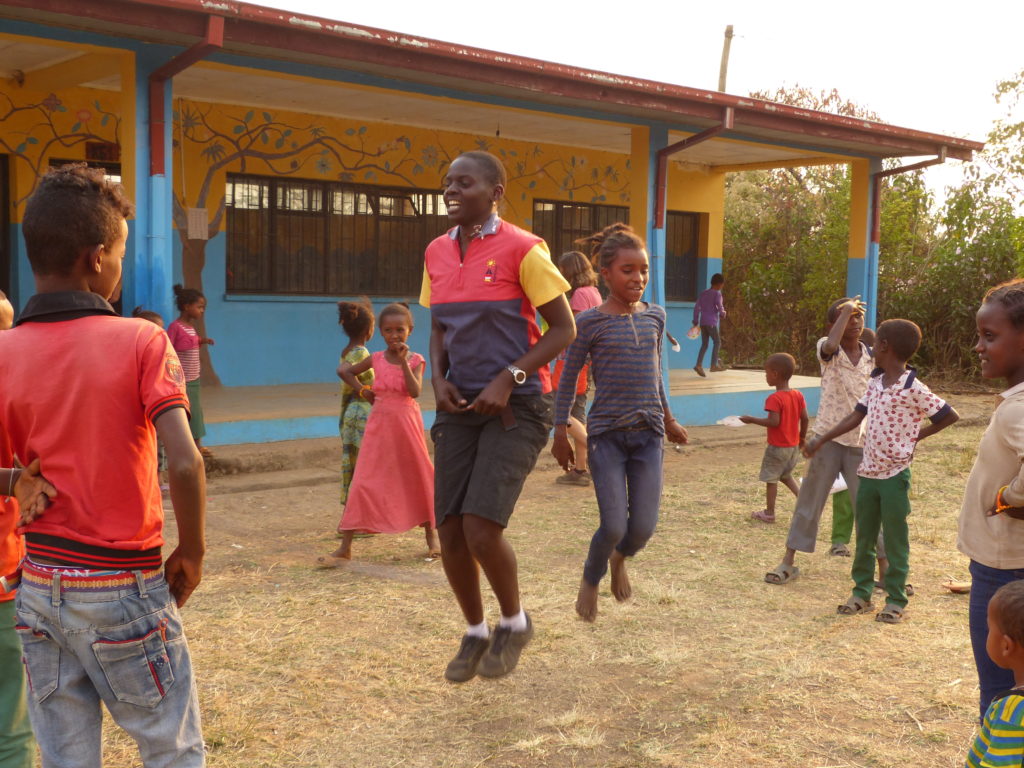
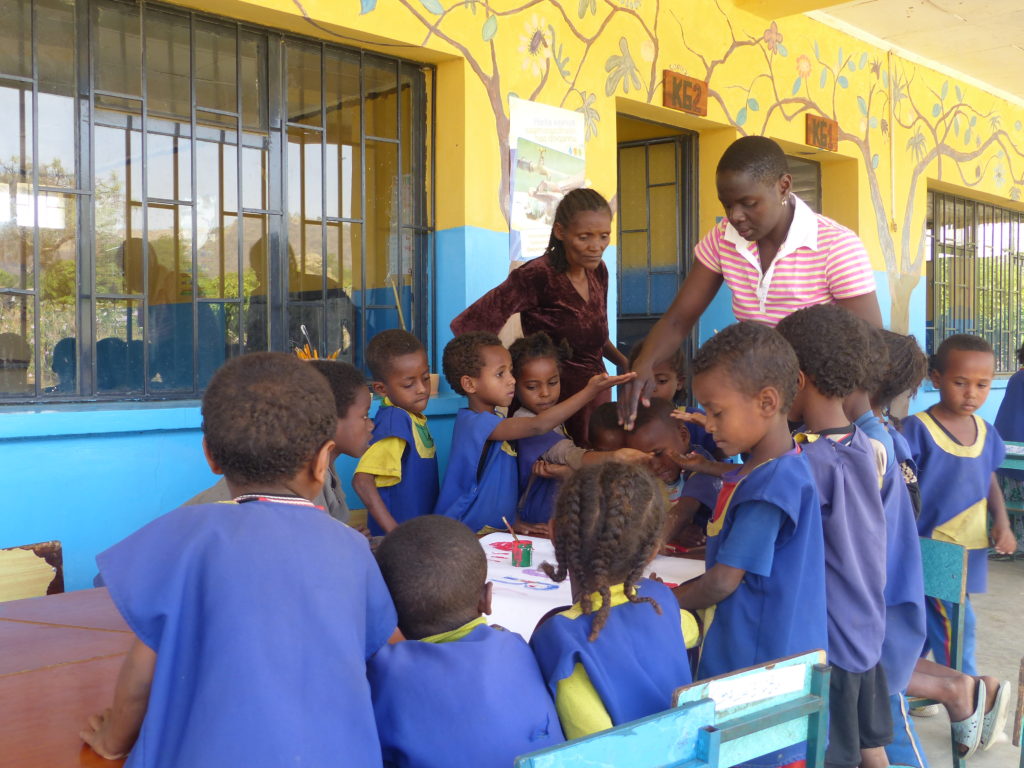
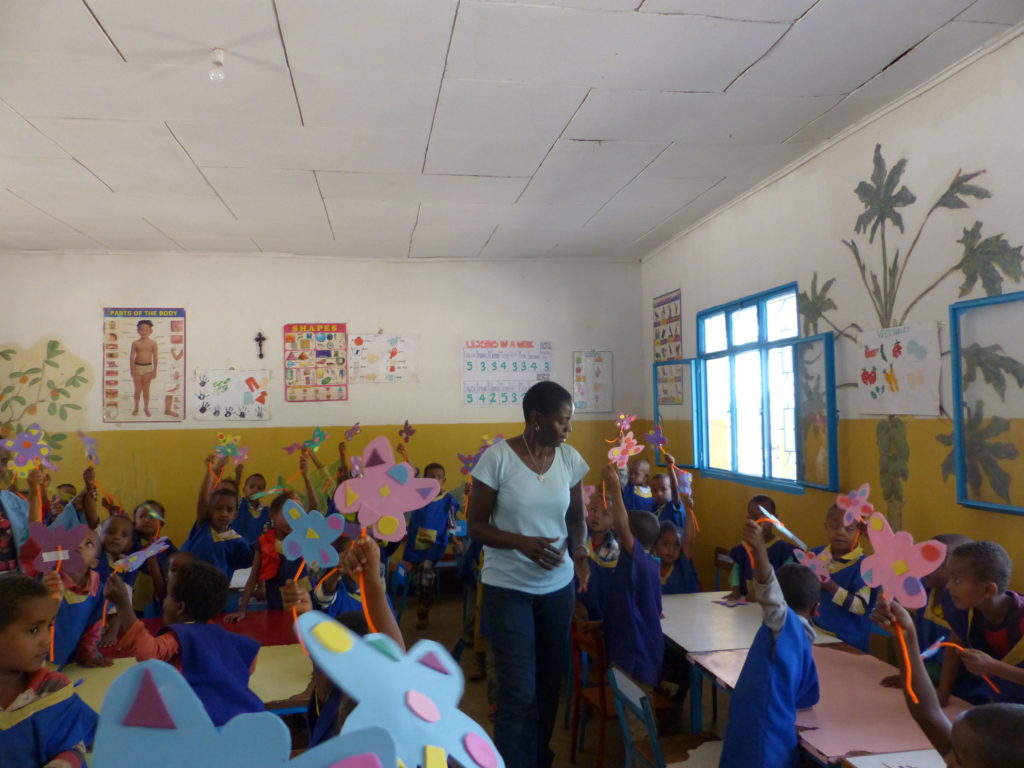
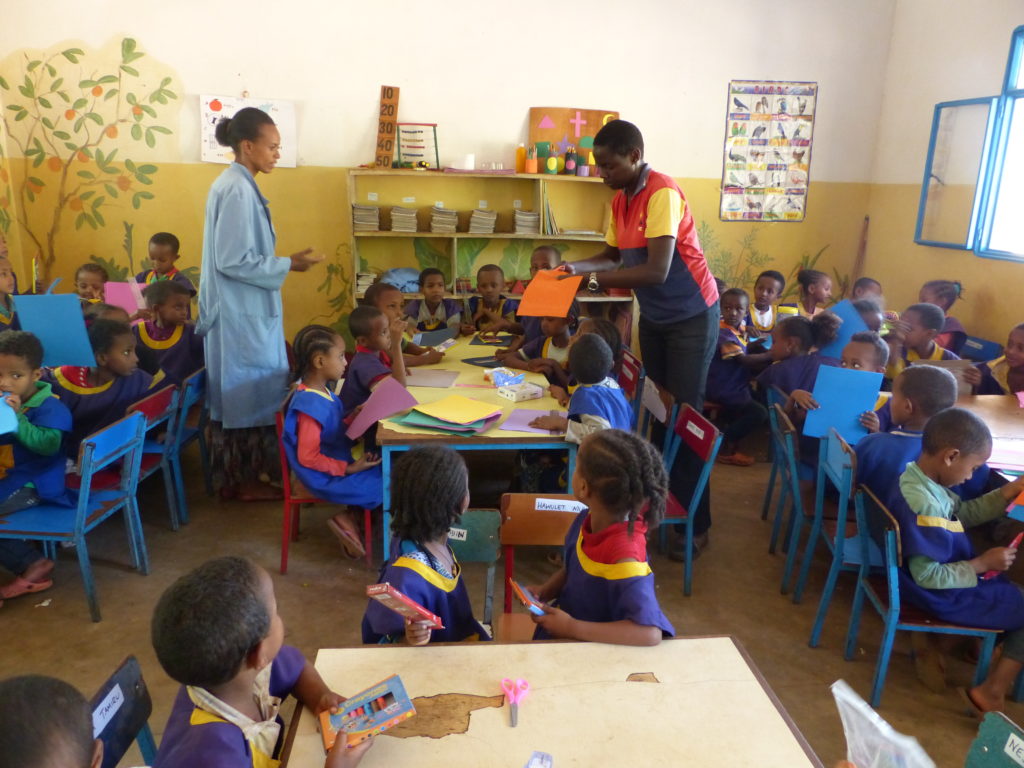
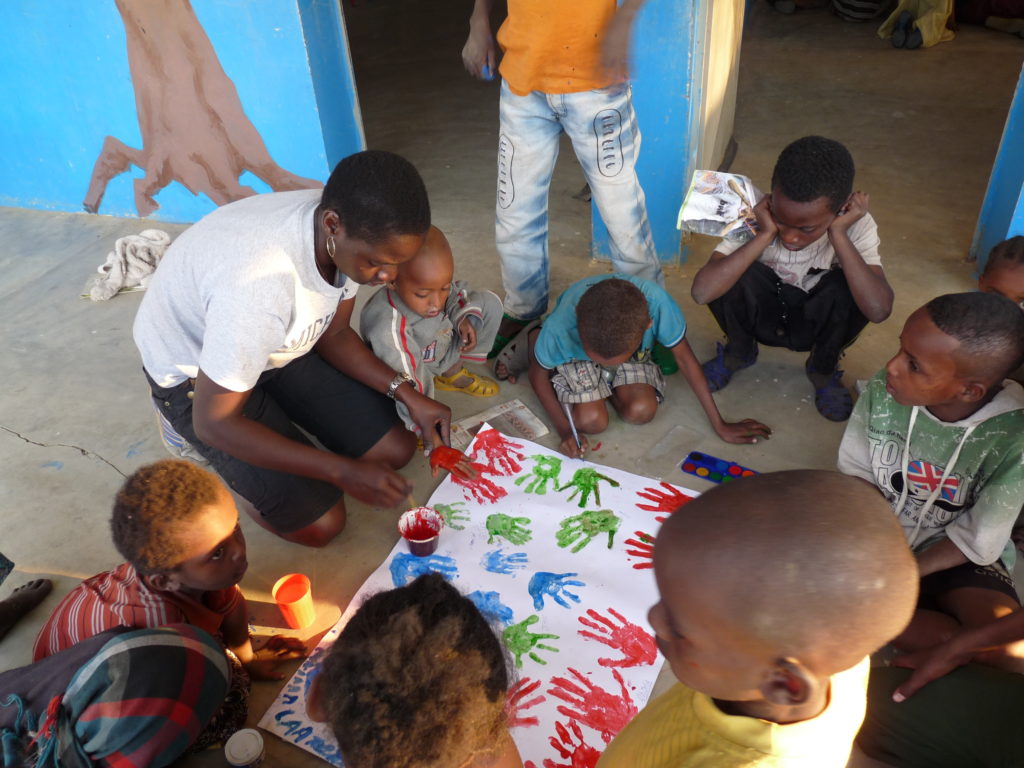
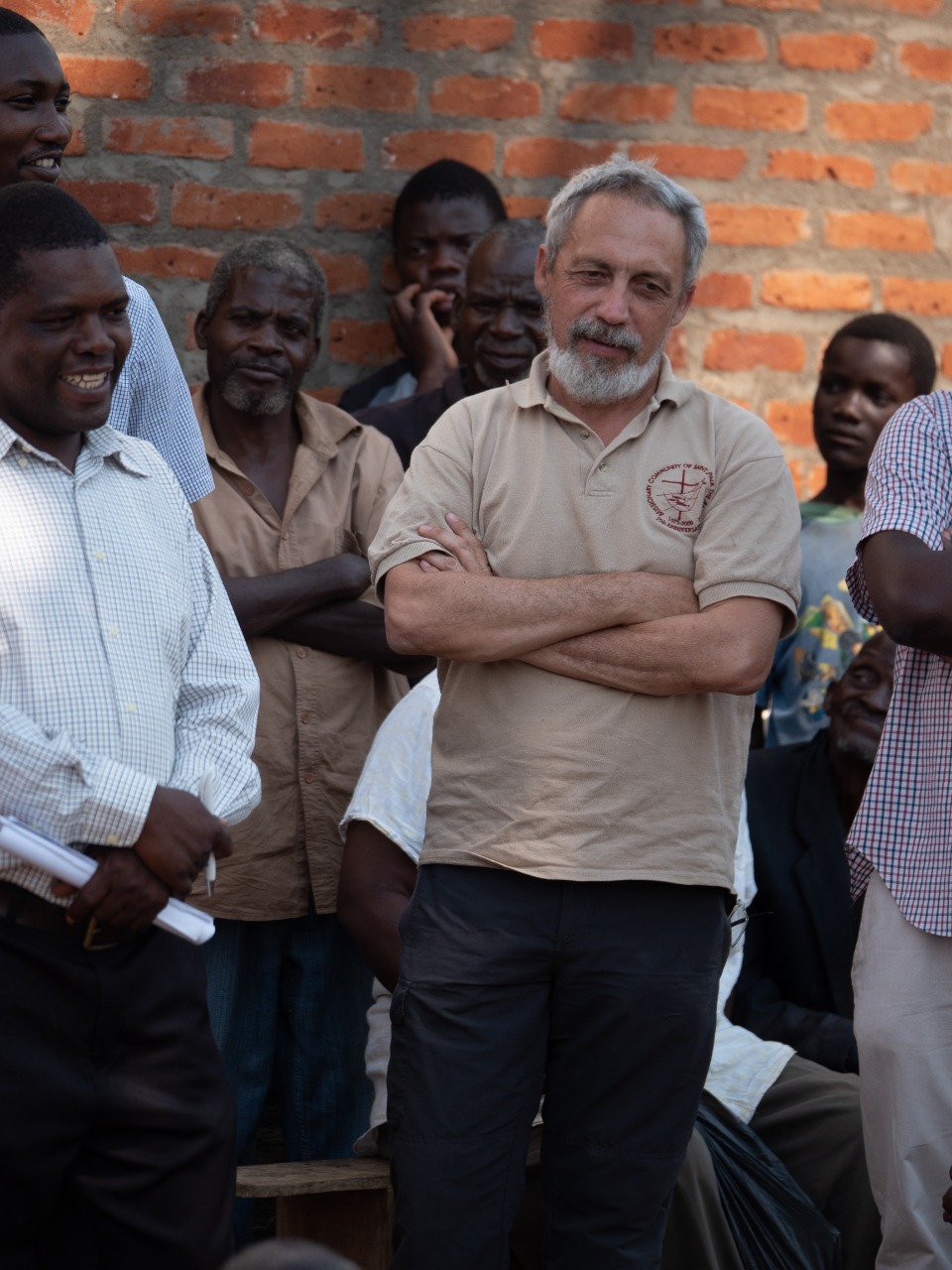
I am not entirely sure whether it was I who was seeking Jesus or it was He who found me… maybe both.
As far back as I can recall my own conscience, I remember a deep desire to never fall into the worldly race: university, a well paid job, start a family, all that lifestyle stood up like a huge mountain. Panikkar’s reflection works well here because he substitutes the more traditional fuga mundi (escaping from the world) by fleeing from the system. The system, the world, as it appeared to me, just was not my thing. And the Church would not have seemed it either, given the fact that I was the son of a militant communist.
Today, from the perspective acquired through the passage of time, I subscribe to Panikkar’s words: “Since my early youth I have always felt like a monk, but one without a monastery, or at least without walls…, without a habit, or at least without vestments other than those worn by the human family. Yet even these vestments had to be discarded, because all cultural clothes are only partial revelations of what they conceal: the pure nakedness of total transparency, only visible to the simple eye of the pure in heart”. But, where to go? Who to go with? I felt somewhat lost.
In my case, I felt this need to change, when I was in high school. I was a bad student mainly due to a lack of drive, and, why hide it, also lack of wit. So when I failed three subjects at school my parents got alarmed and, I am not entirely sure how, against my wishes, I ended up in a parish with a group of students who met to review their pending subjects. It was there that I first met Paco and others, with whom we now form the Missionary Community of Saint Paul the Apostle. I remember that, in spite of my prejudices against the Catholic Church, mine was a love at first sight. This was what I had been seeking and I was staying put. Thus began a long adventure, taking me to Turkana, Kenya famously acclaimed in bold travellers’ books as one of the remotest places on the planet. There I stayed for nearly 20 years and now I am in Malawi the “warm heart of Africa”, where I assist to run a parish reaching to 49 communities trying to get involved in they personal and community development
What seduced me? I like the words of Cardinal van Thuan “I have left everything to follow Jesus, because I love Jesus’ defects”. His first defect, he has a terrible memory and forgives the sinful woman who anoints his feet with perfume (Lk 7,47) and praises the father who welcomes the prodigal son after he had squandered all his inheritance (Lk 15, 18–24). His second defect, Jesus doesn’t know maths, he abandons the 99 sheep to look for the lost one (Lk 15, 4-7). Third defect, Jesus doesn’t know logic. The lady who lost a drachma spends much more in celebrating that she found it (Lk 5, 8–10). Fourth defect, Jesus is a risk-taker; he promises trials and persecutions (Mt 5, 3-12). Fifth defect, Jesus doesn’t understand finances: he pays the same to those who have worked the whole day in the vineyard as to those who came at the last hour (Mt 20, 1–6). But why does Jesus have these defects? Because he is love, “Real love does not reason, does not measure, does not create barriers, does not calculate, does not remember offenses, and does not impose conditions”.
The Gospel is something that, if not shared, withers. If in some way Jesus and his defects seduced me, it was through the mediation of specific people. Along my way, I have met many others who at one level or another are also searching. I think that when we, the labourers, live in love, and strive to awaken longings which gush forth from the treasure of living the Gospel raw in the flesh, Jesus will then seek out many others who set themselves on the road. That is why I desire to love and keep going ahead till my days come to an end.
Fernando Aguirre, MCSPA
References
1. Raimundo Panikkar. Elogio de la Sencillez. Estella: EVD, 1993. p. 148
2. Ibídem. p. 14
3. Francis Xavier Van Thuan Nguyen. Testigos de Esperanza. Madrid: Ed. Ciudad Nueva, 2001. p. 26
4. Ibídem. p. 25-31
